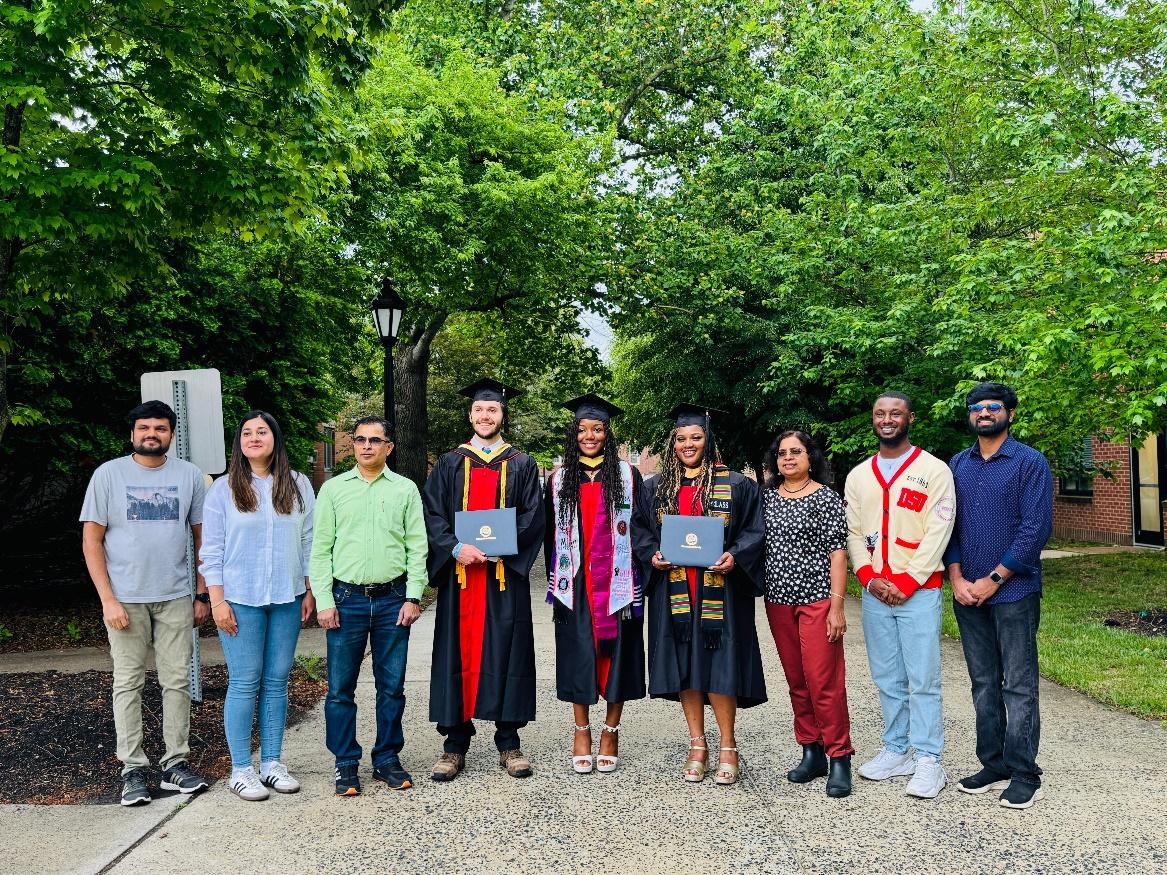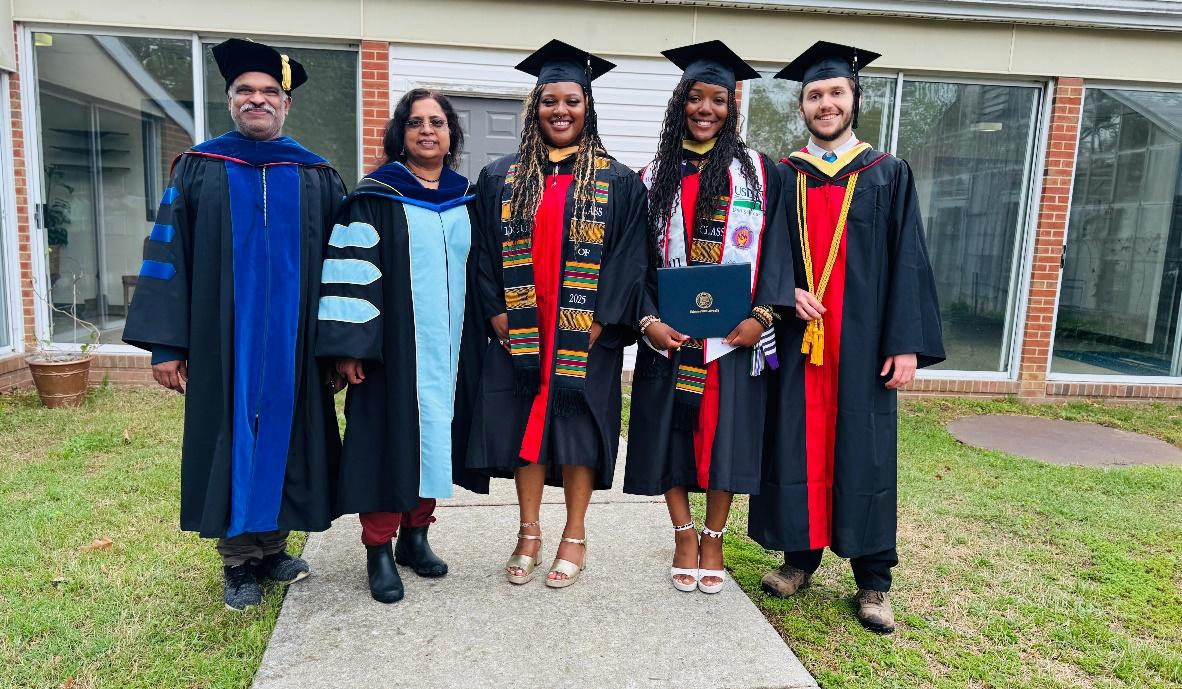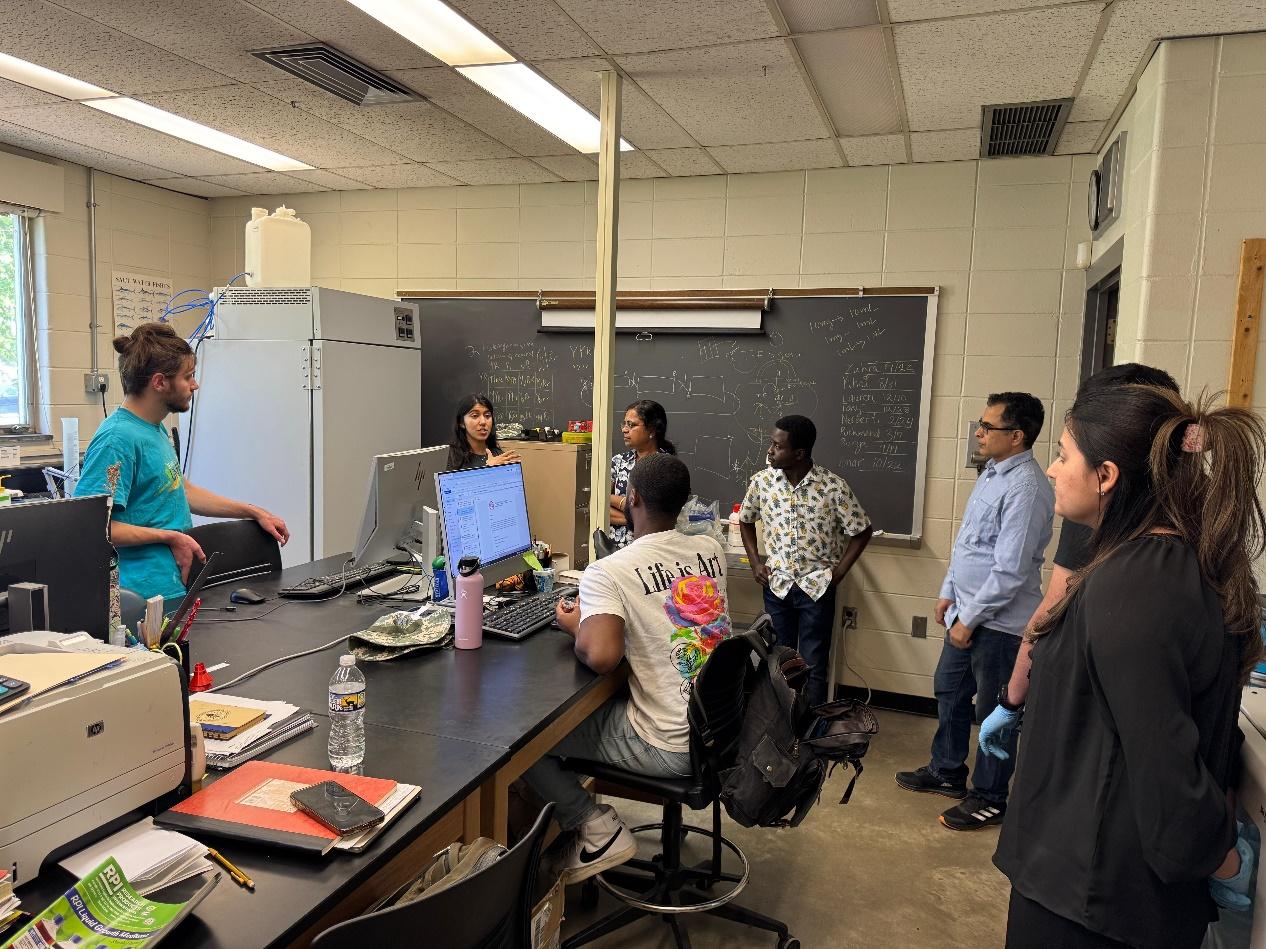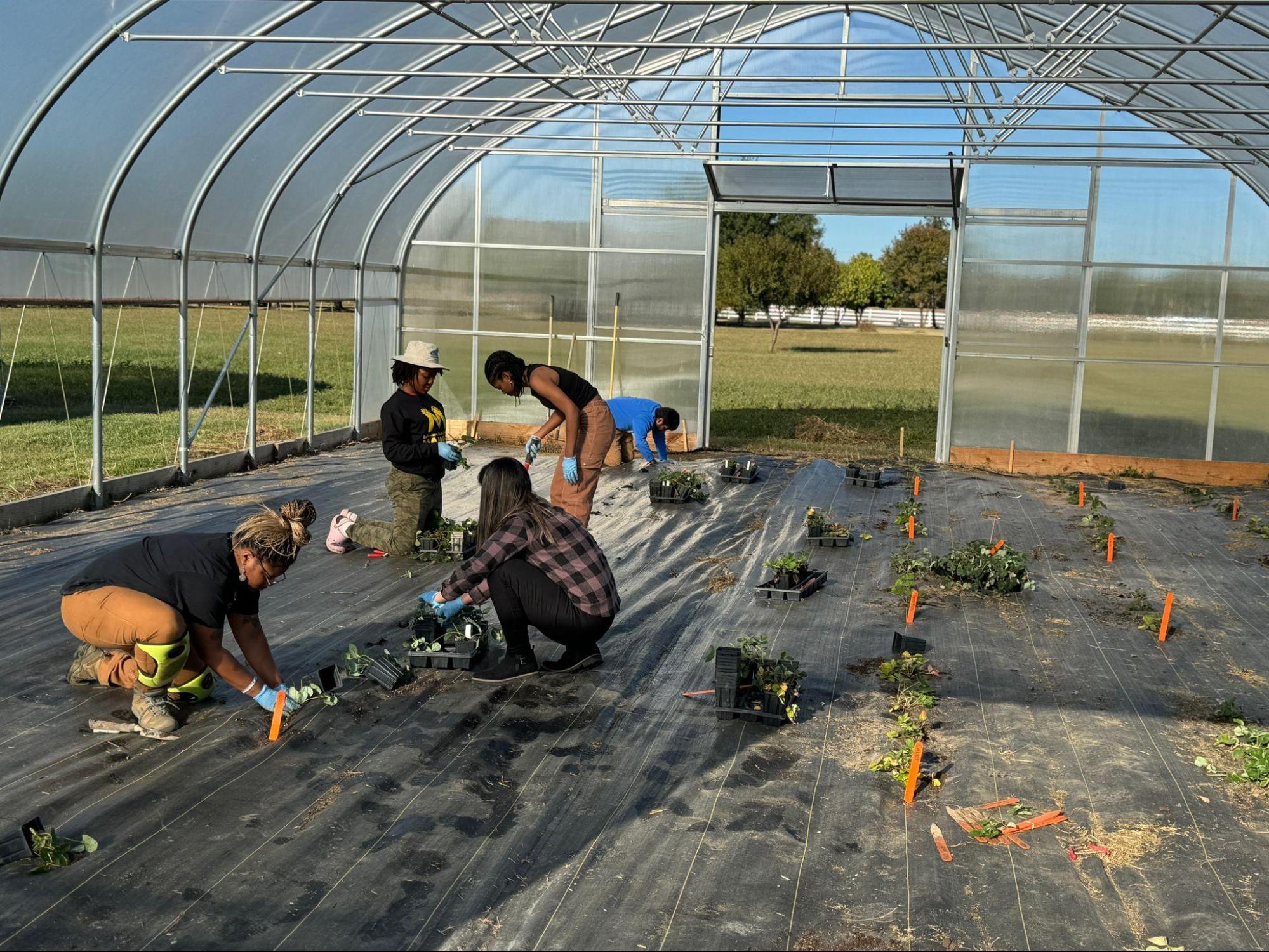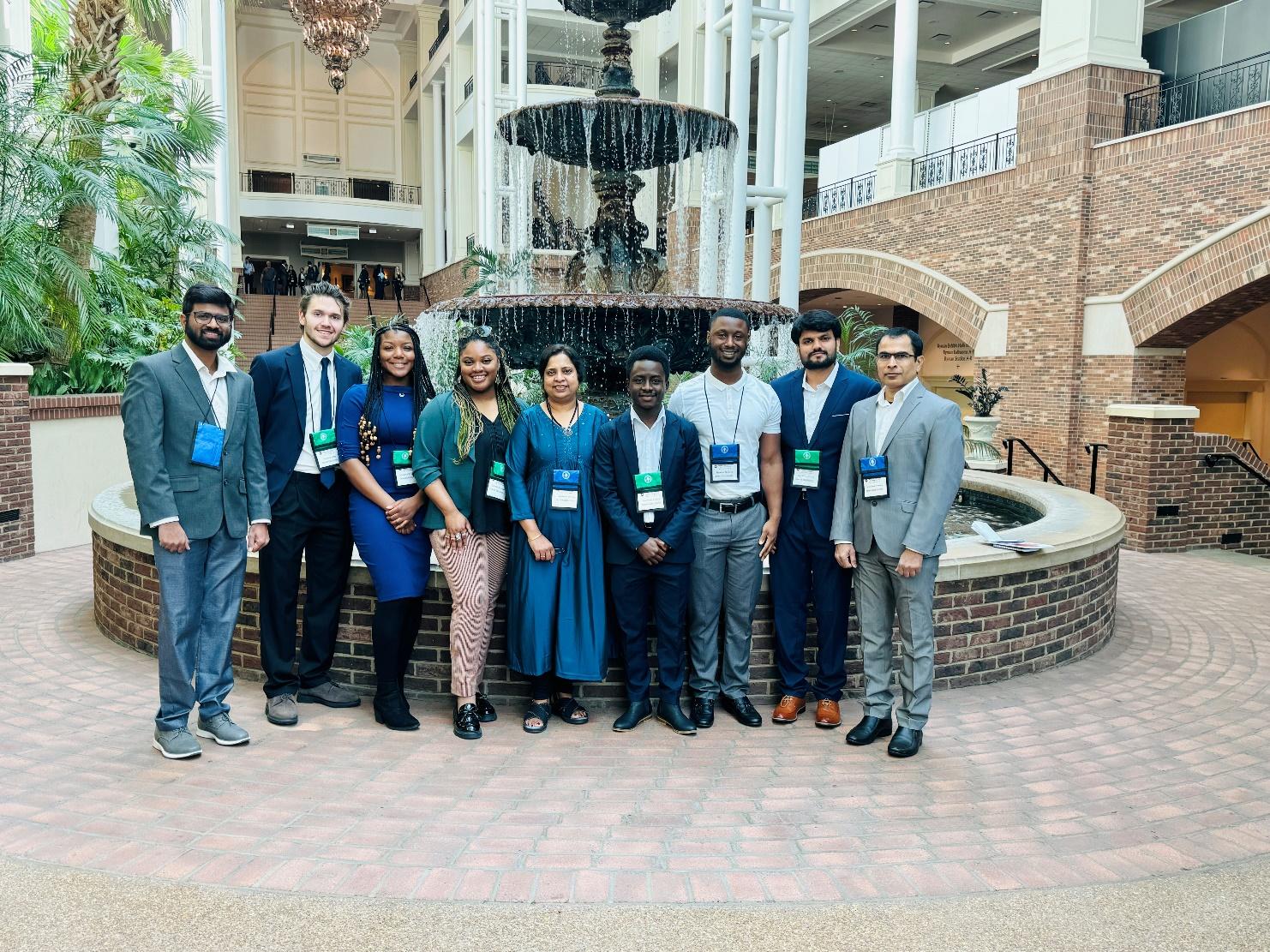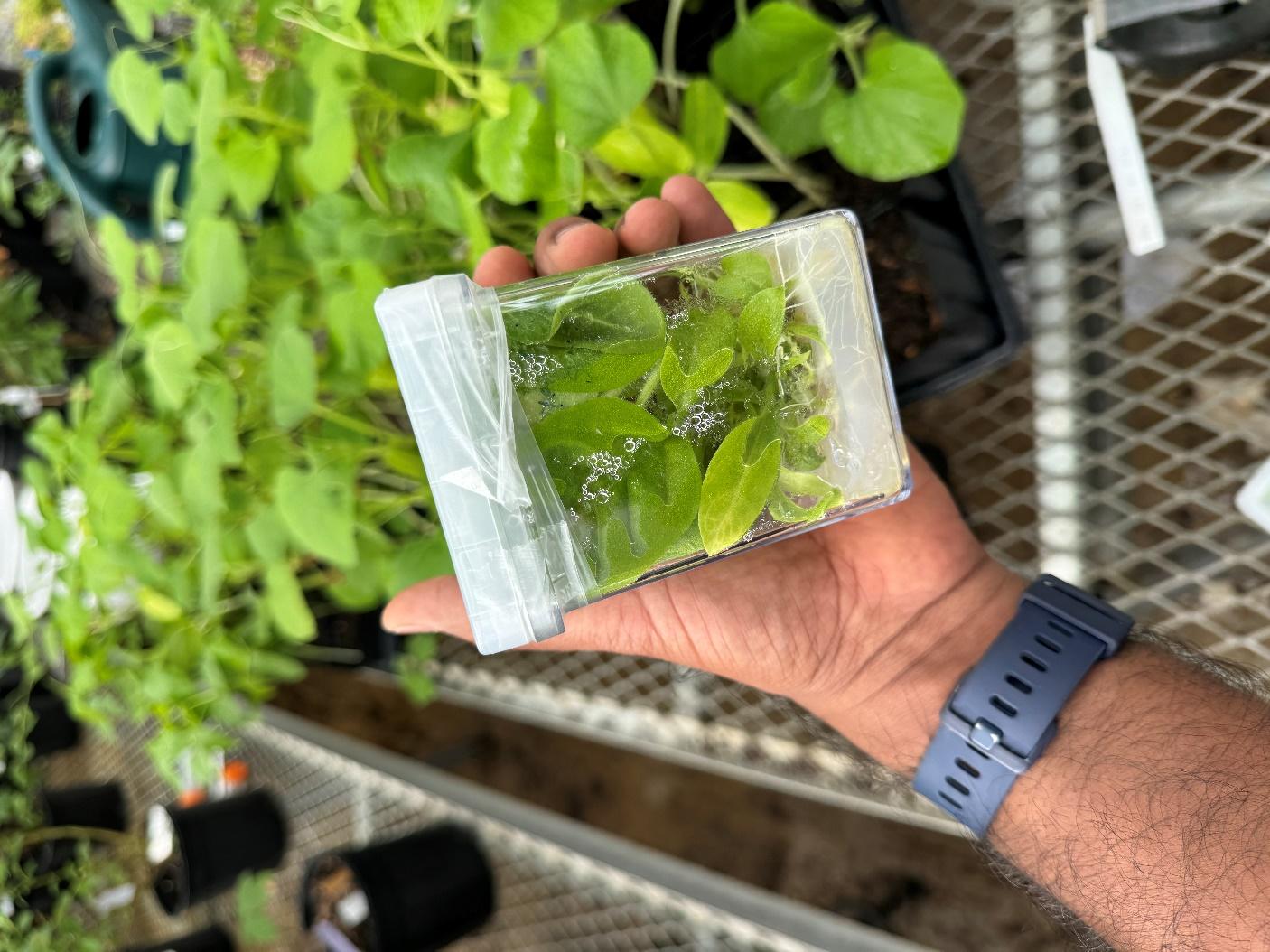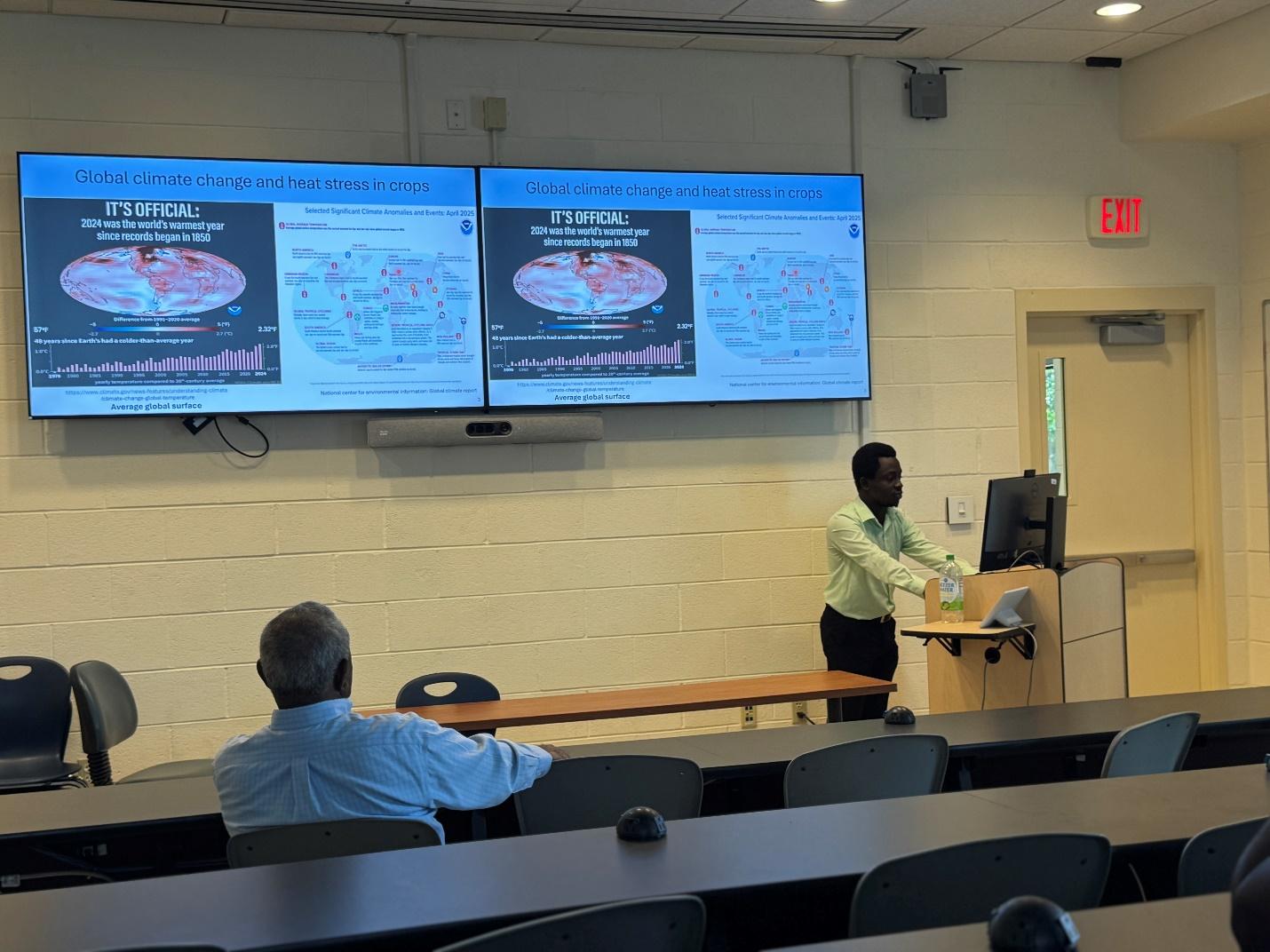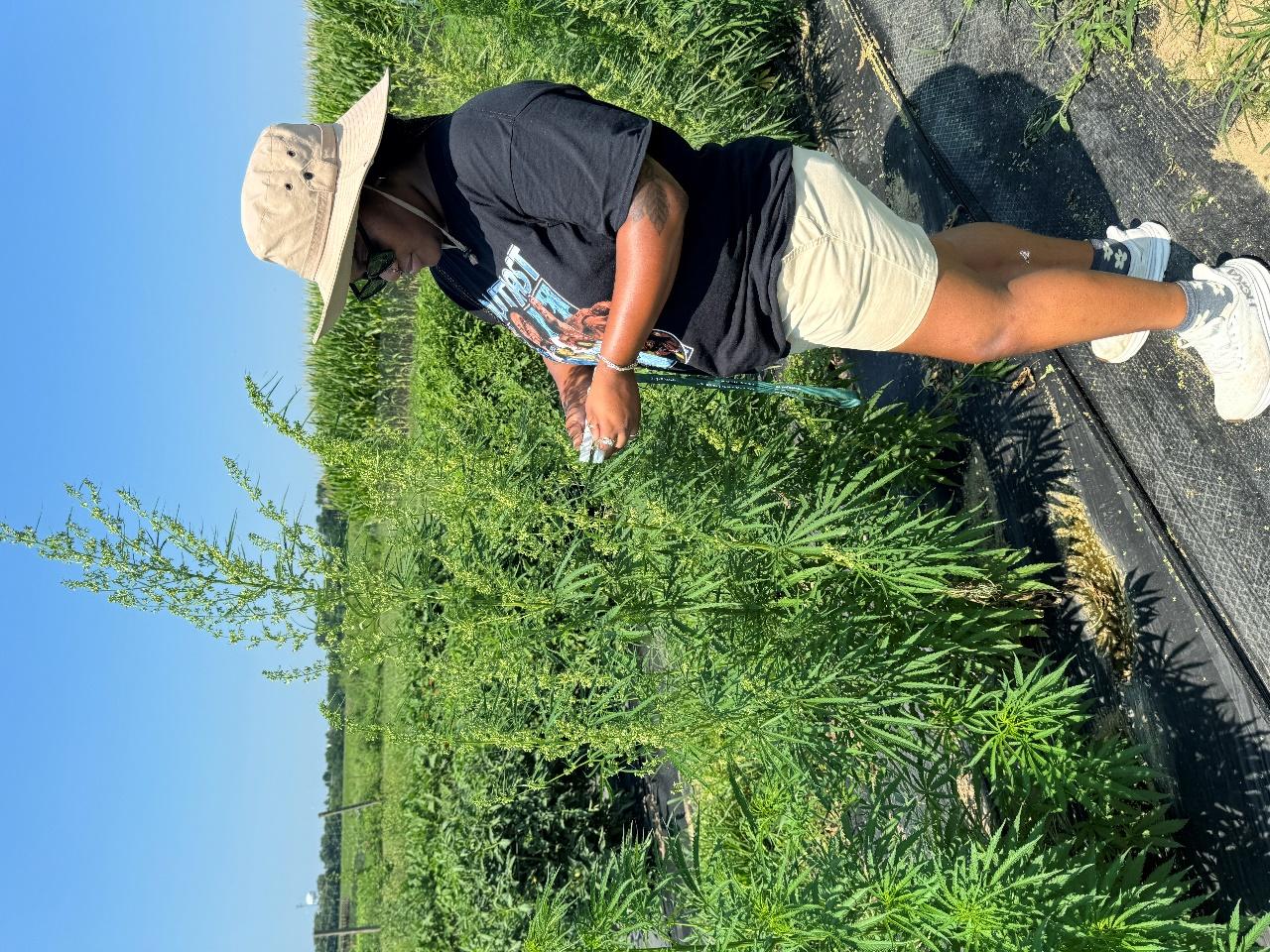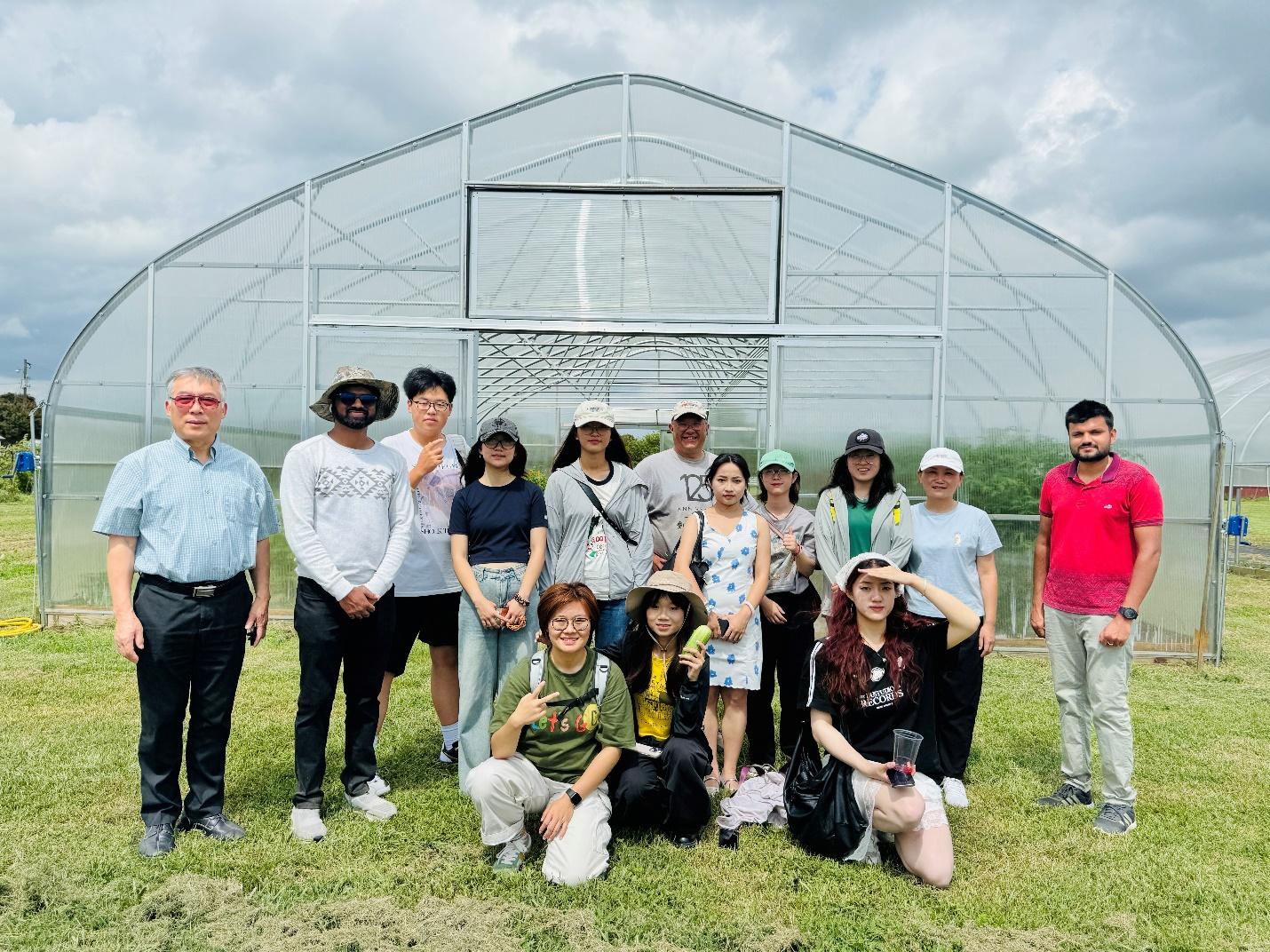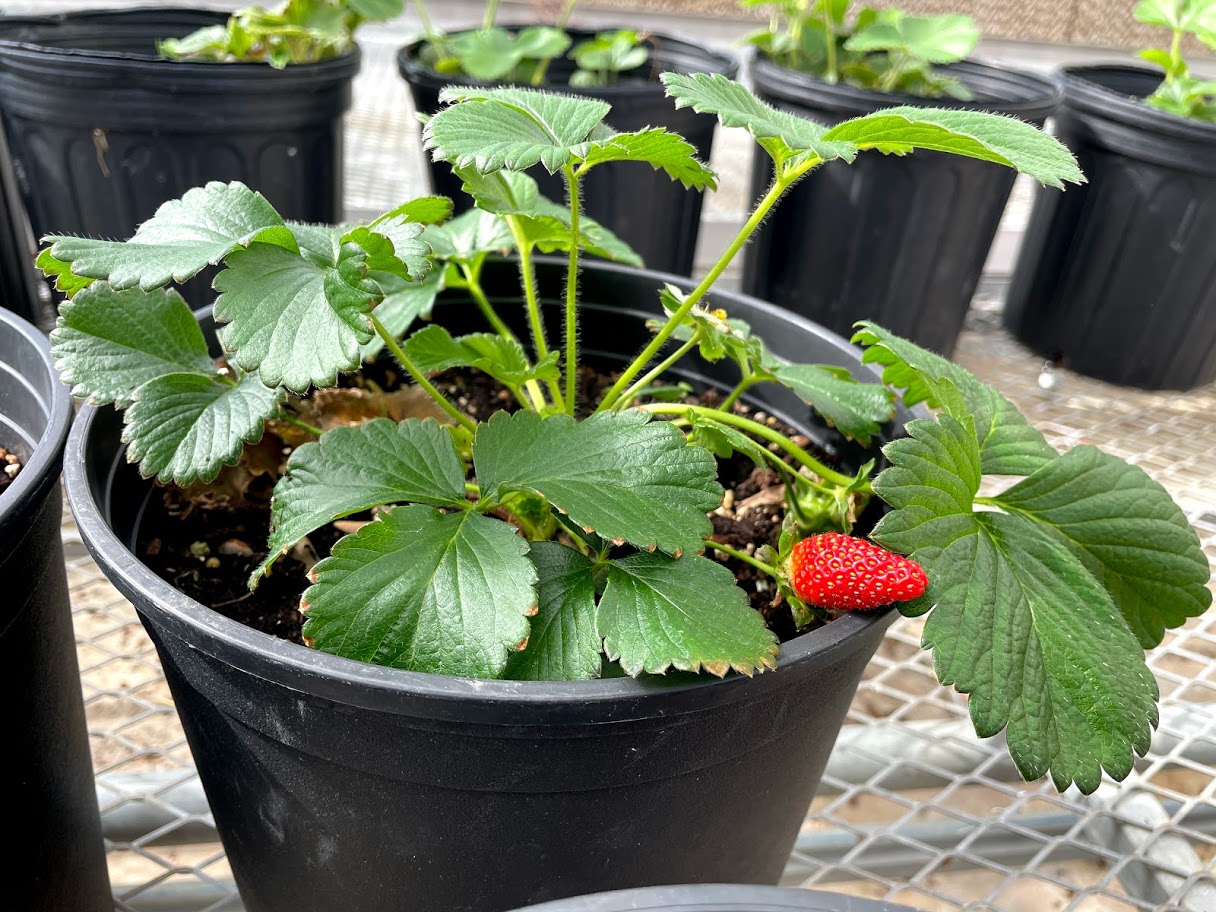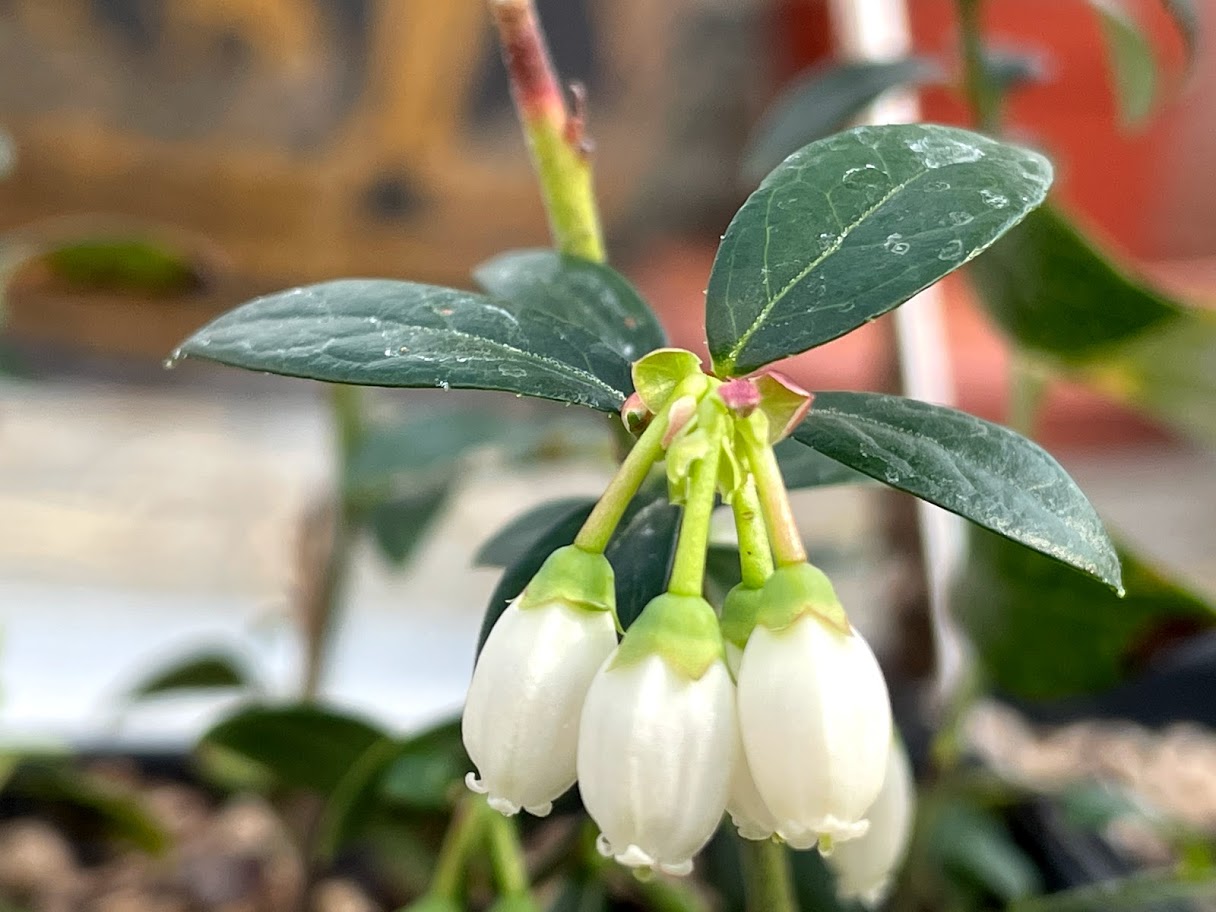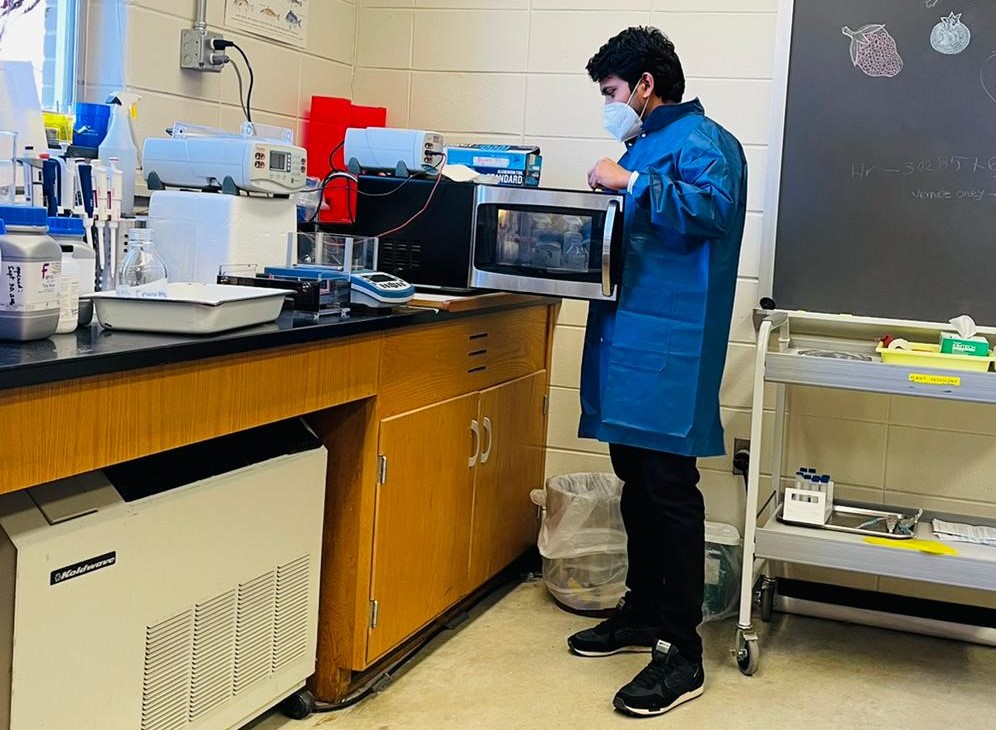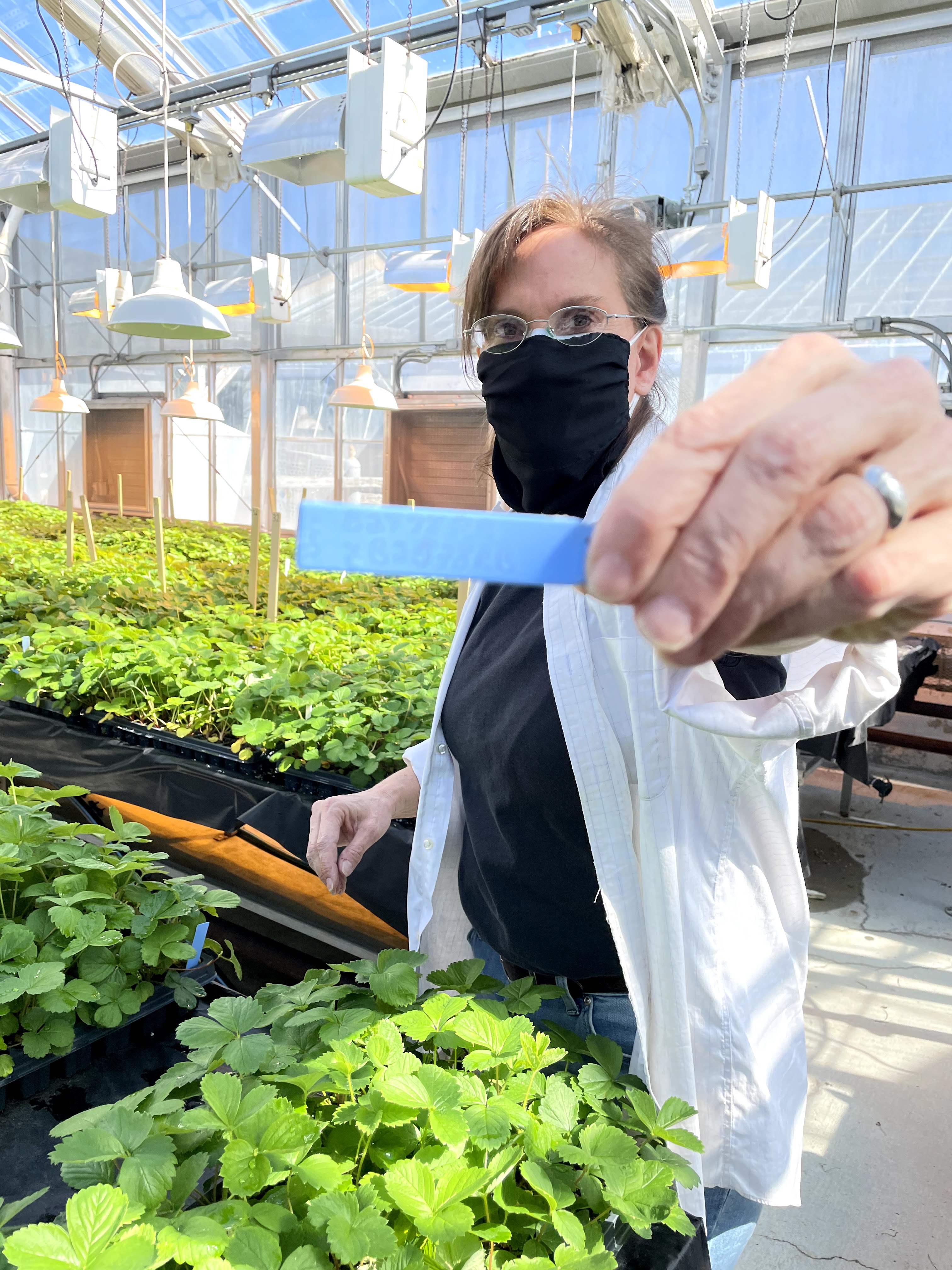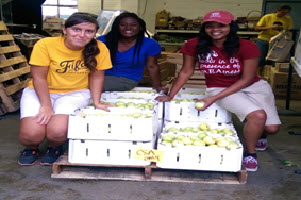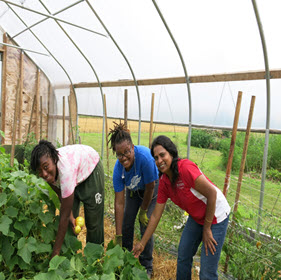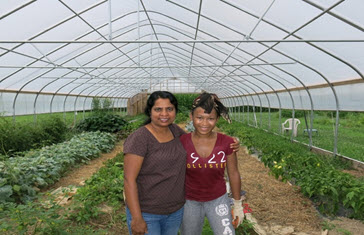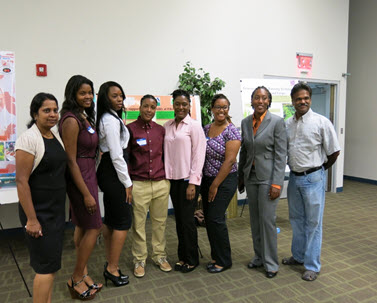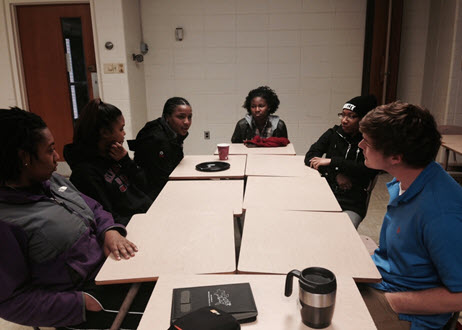Delaware State University
Plant Molecular Breeding Lab
Research Gallery
-
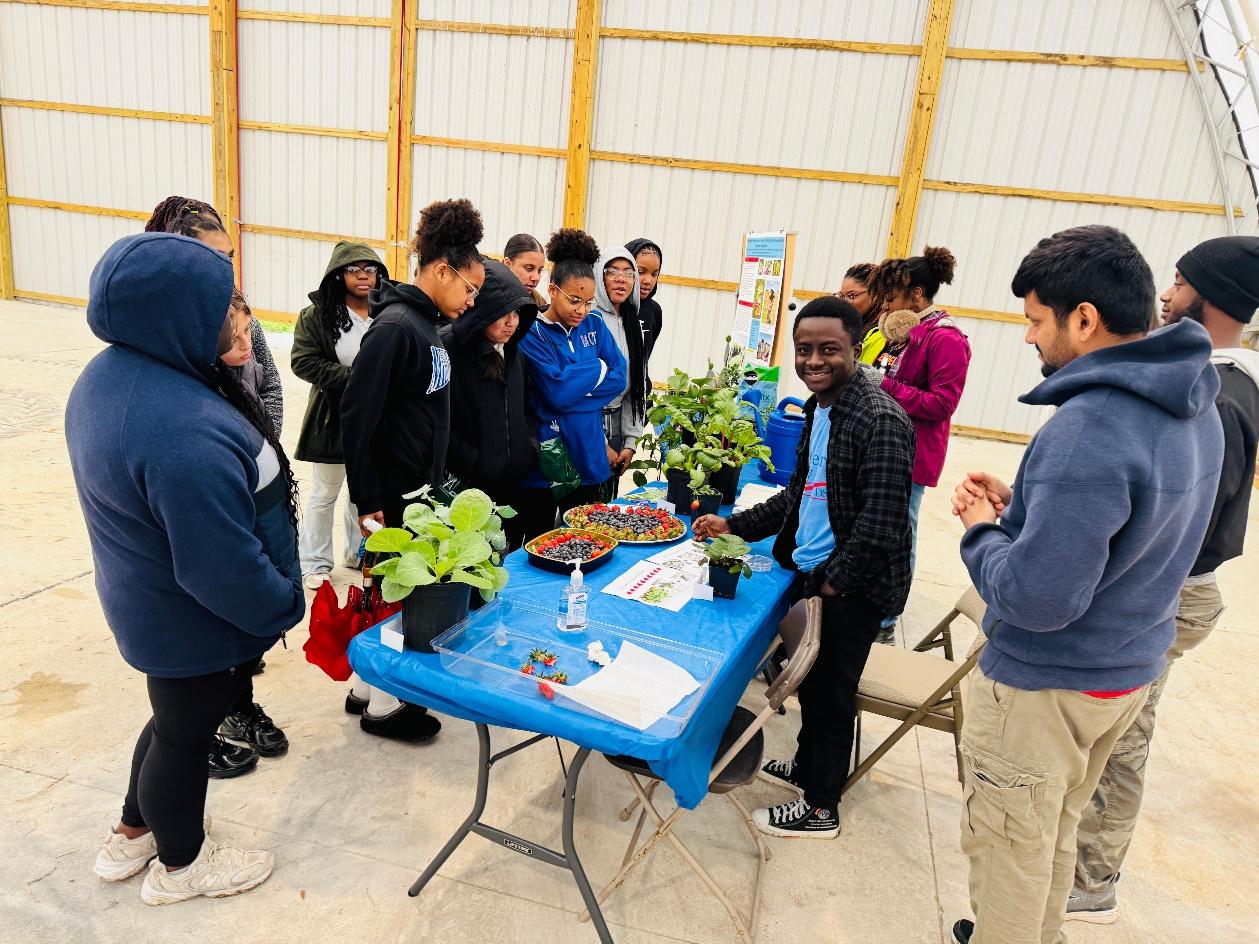
Dr. Melmaiee's lab set up a plant science stall at the DSU Farm Tour on April 11, 2025, organized by the MANNRS and DSU-Cooperative Extension
-
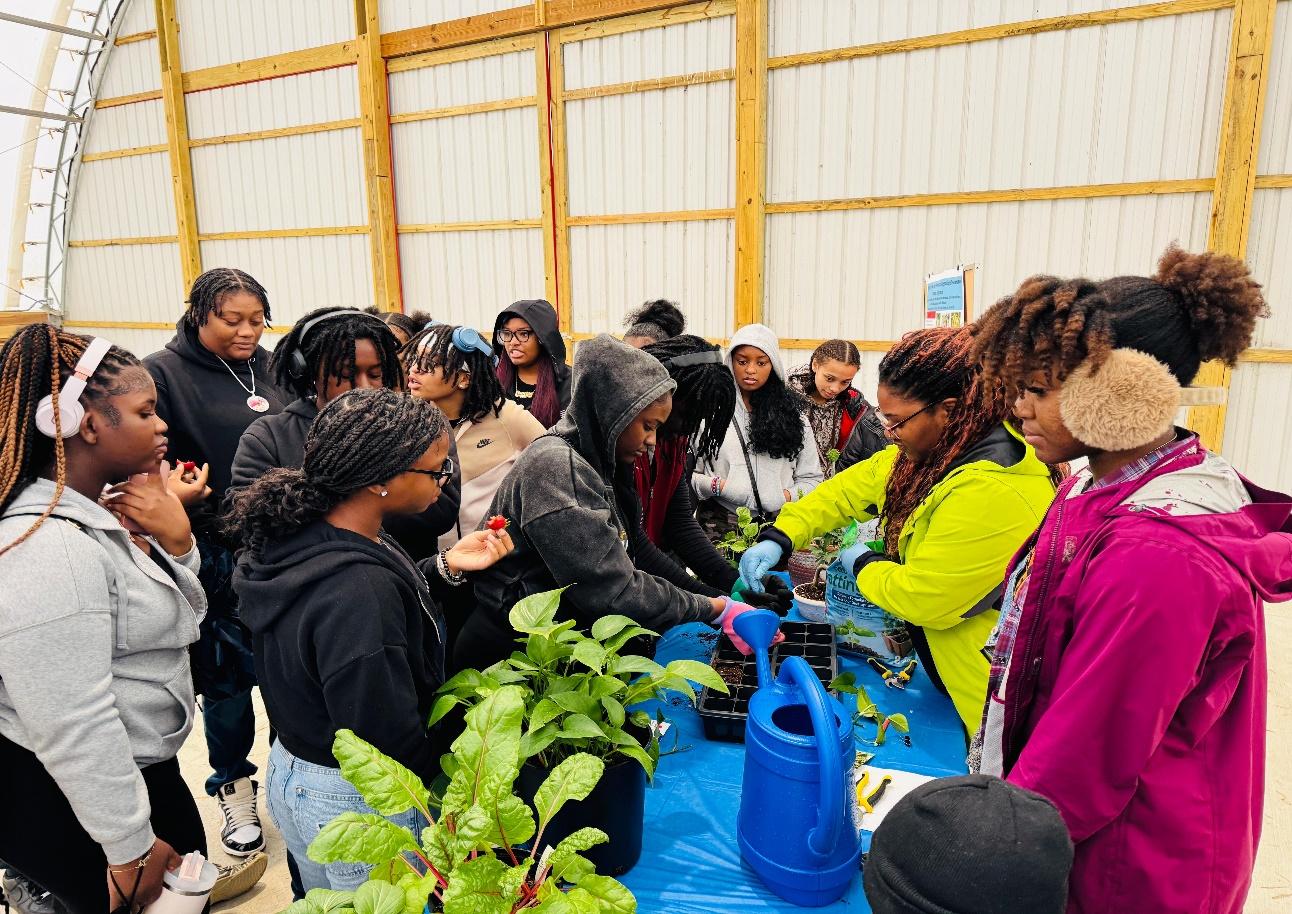
Dr. Melmaiee's lab showcasing the planting practices to middle school students at the DSU Farm Tour on April 11, 2025, organized by the MANNRS and DSU-Cooperative Extension
-
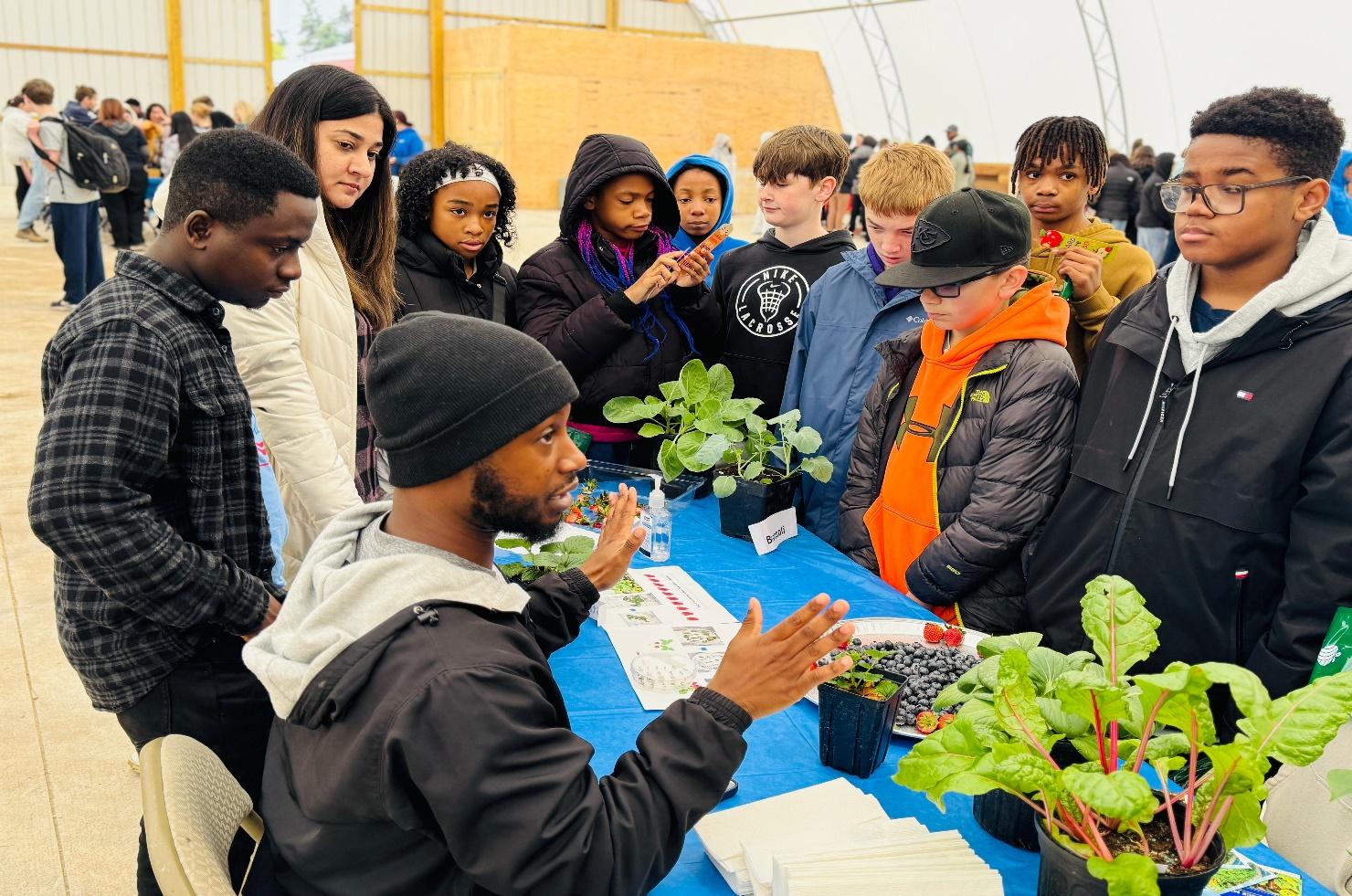
Mr. Mekhai explaining our lab research to elementary school students at the DSU Farm Tour on April 11, 2025, organized by the MANNRS and DSU-Cooperative Extension
-
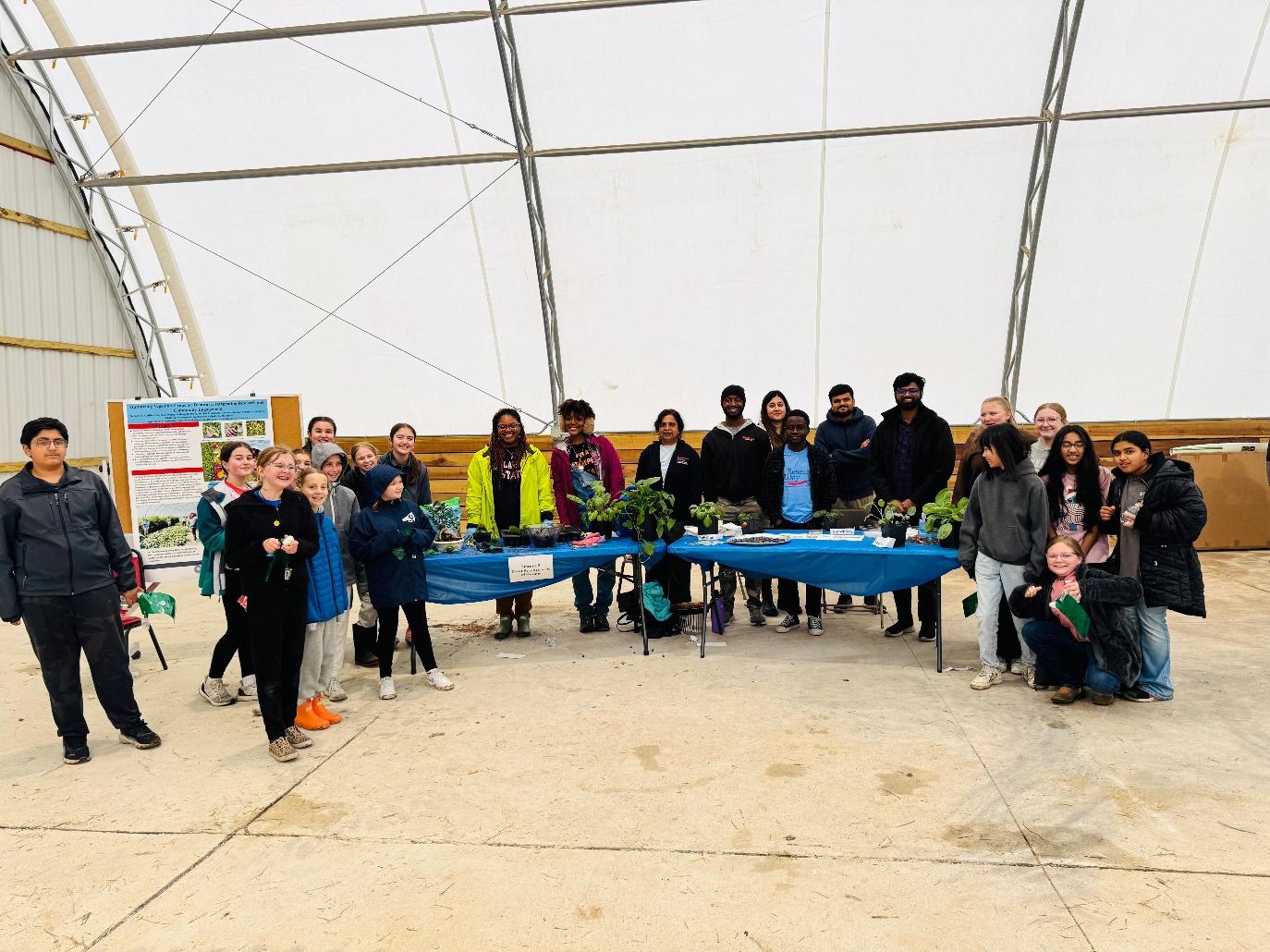
Dr. Melmaiee and lab members with visiting middle school students at the DSU Farm Tour on April 11, 2025, organized by the MANNRS and DSU-Cooperative Extension
-
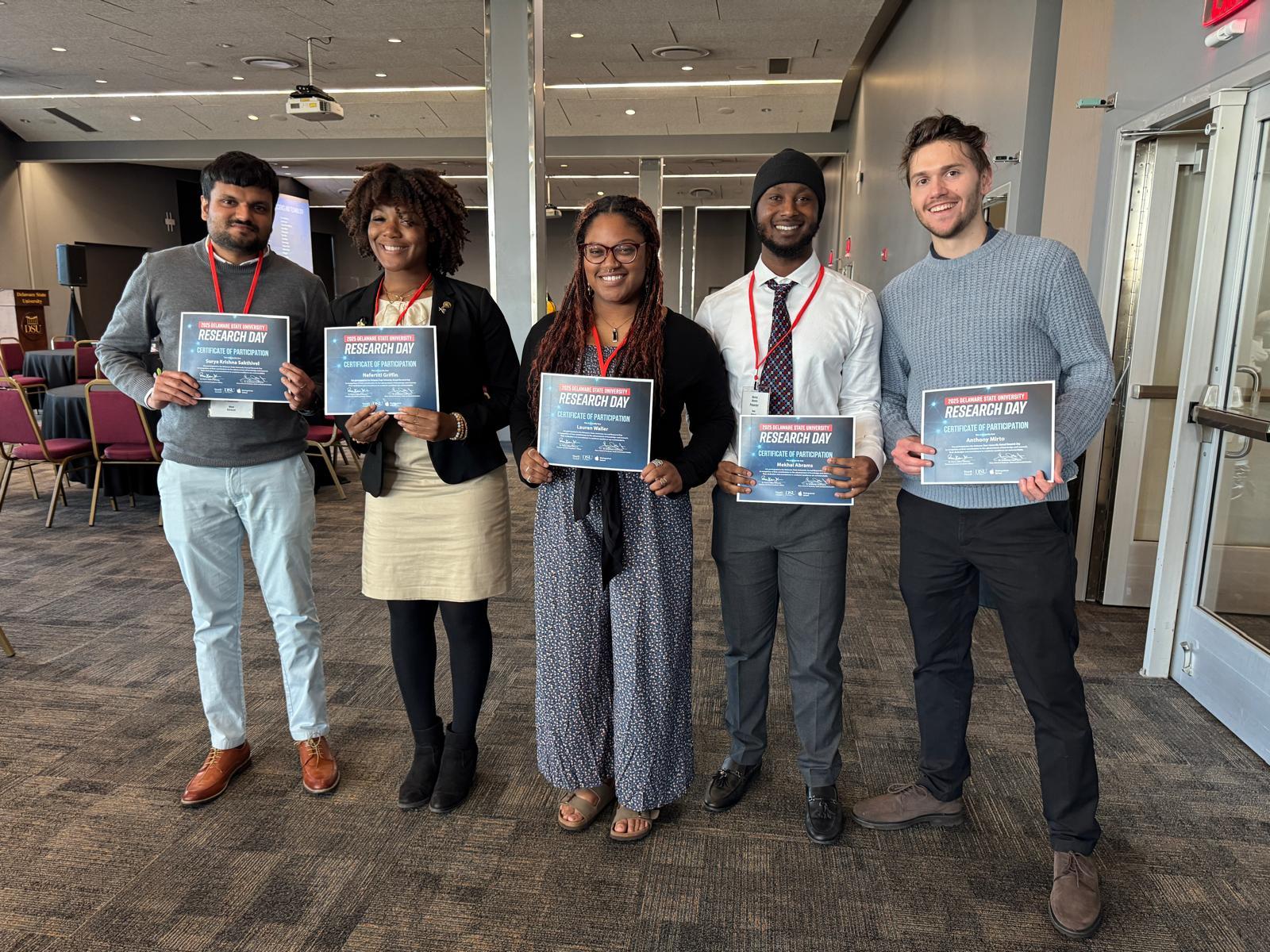
PMB lab students obtained certificates after oral and poster presentations at the 2025-Delaware State University Research Day
-
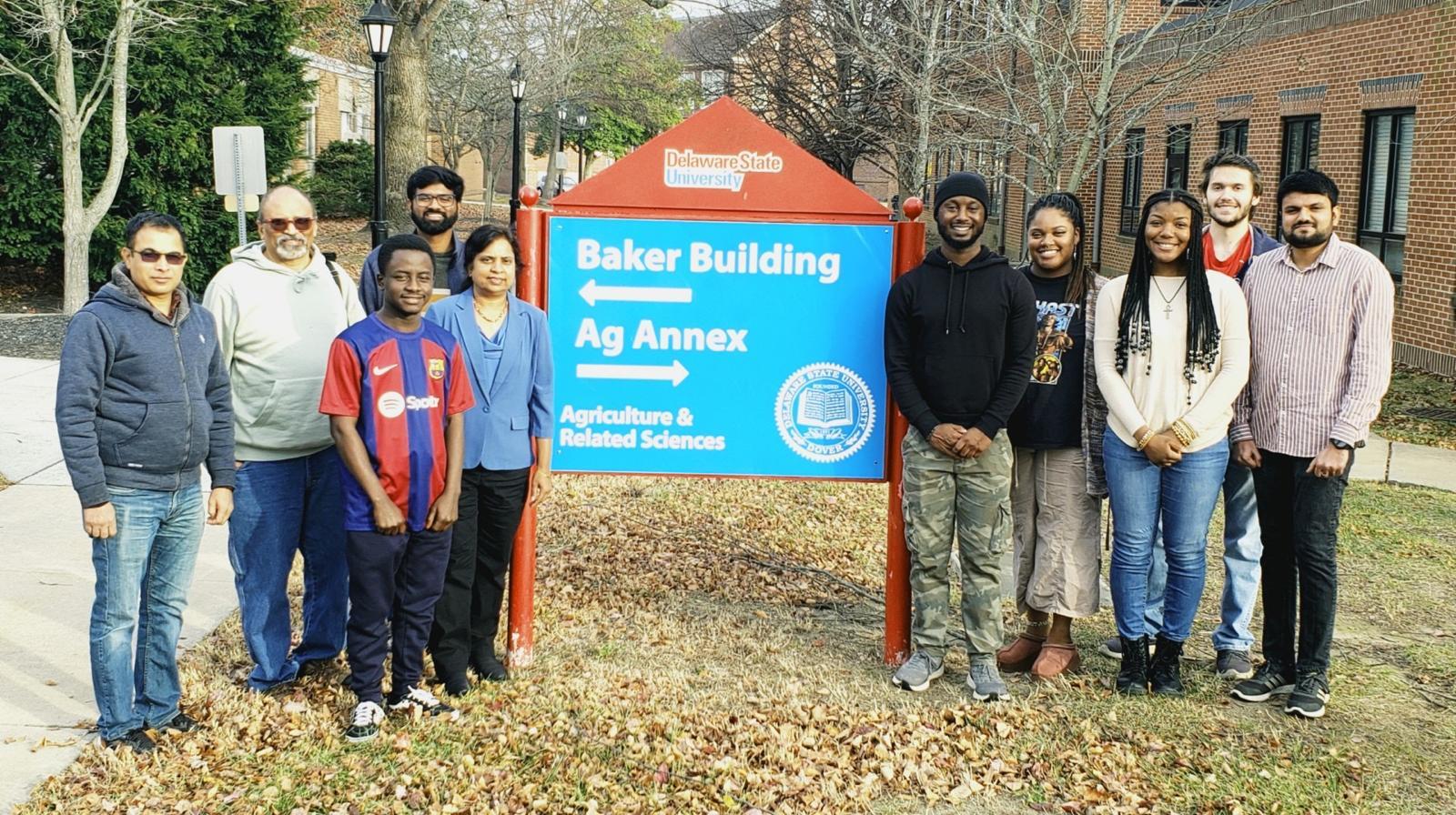
Our collaborator, Dr. Umesh Reddy from West Virginia State University, visited our lab at Delaware State University
-
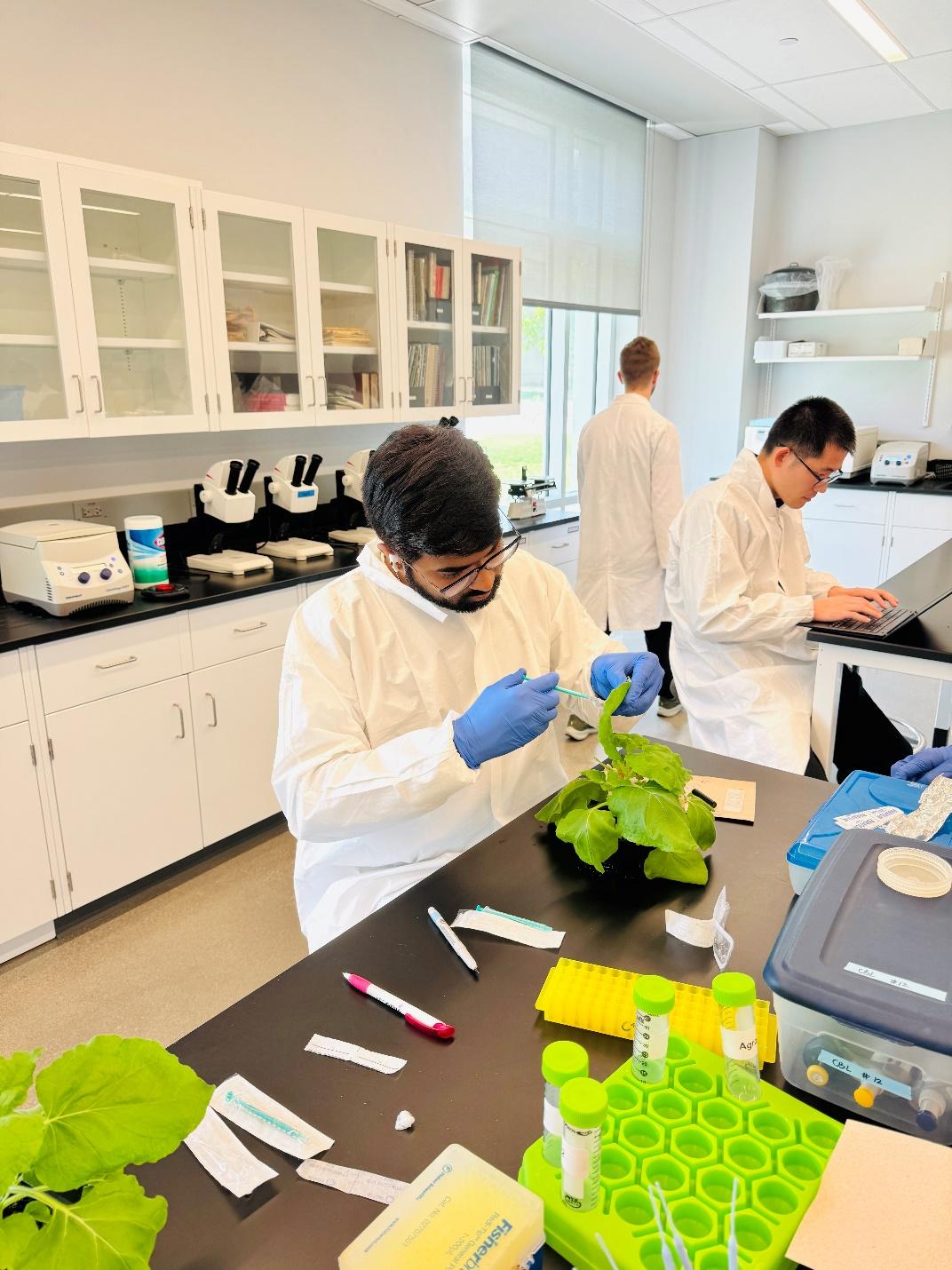
Dr. Vennapusa (Postdoc) from PMB lab attends Plant CRISPR Workshop at Iowa State University in 2024
-
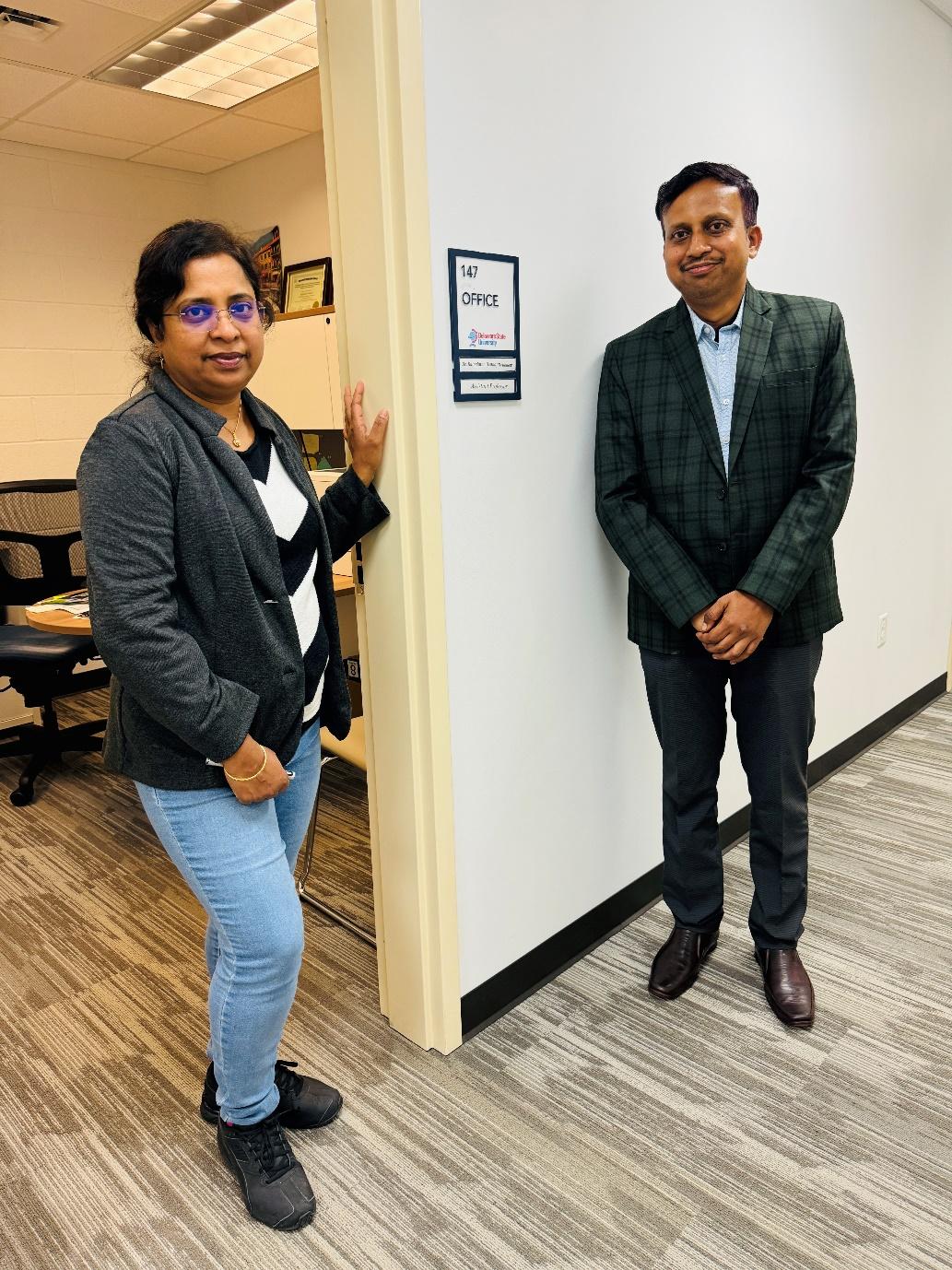
Dr. Melmaiee hosted Dr. Nilesh Bhowmick, Professor in Fruit Science, Department of Pomology & Post Harvest Technology, for a visitor exchange research program sponsored by the National Agricultural Higher Education Project (NAHEP)—Indian Council of Agricultural Research (ICAR), India
-
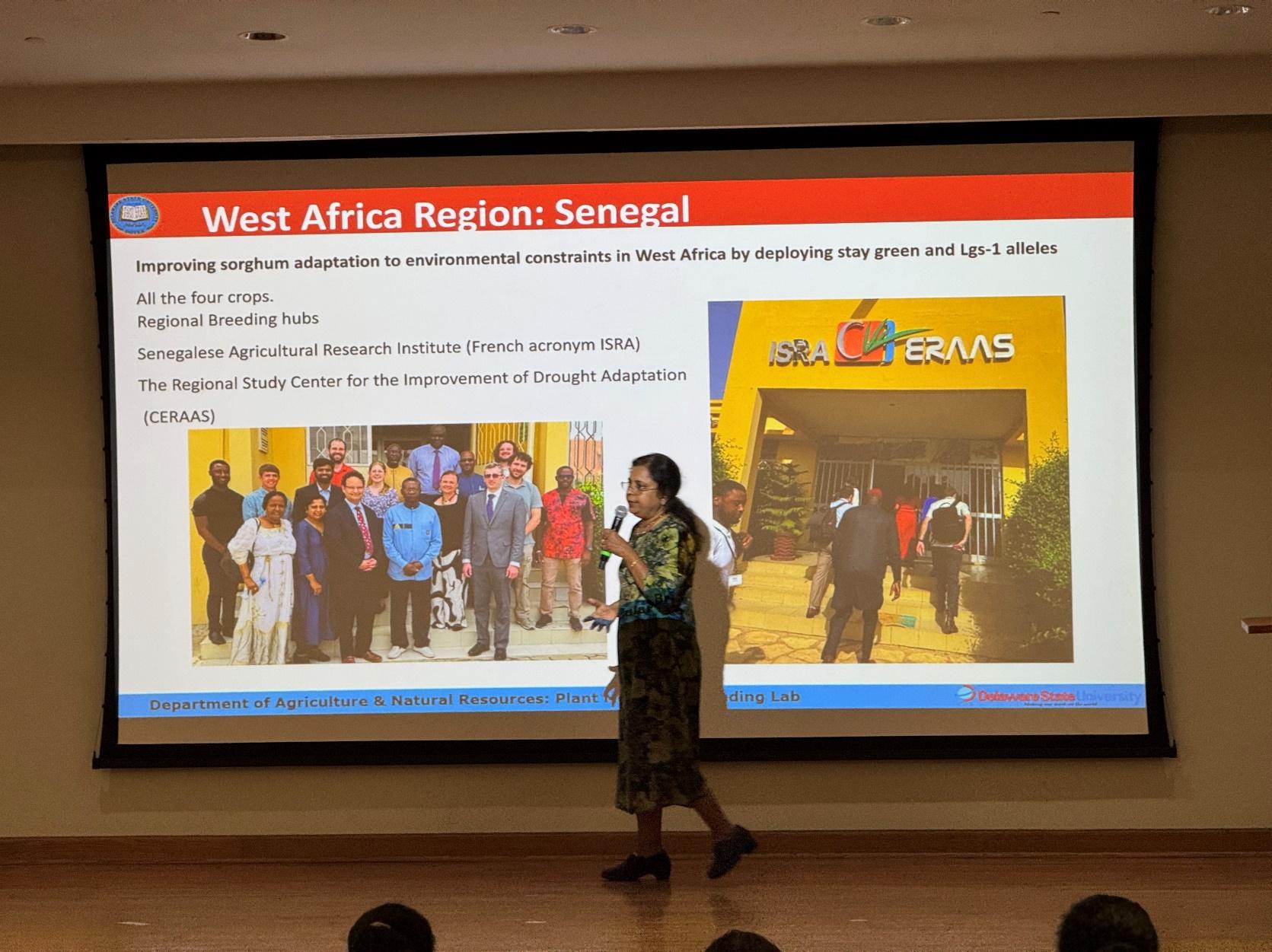
Dr. Melmaiee delivering a Lightning Talk at Delaware State University Faculty Research Day, 2025
-
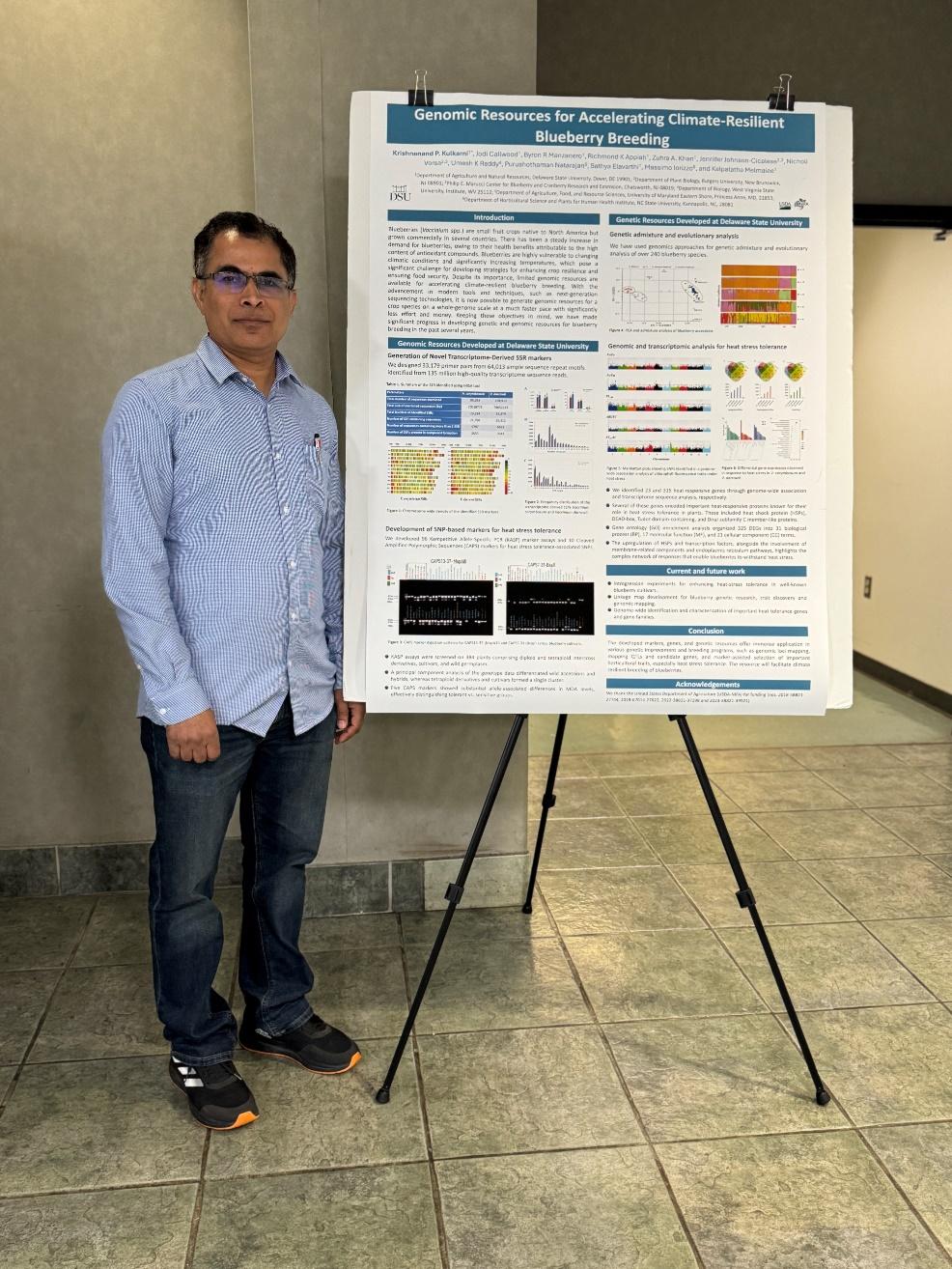
Dr. Kulkarni presenting a poster on his blueberry research at Delaware State University Faculty Research Day, 2025
-
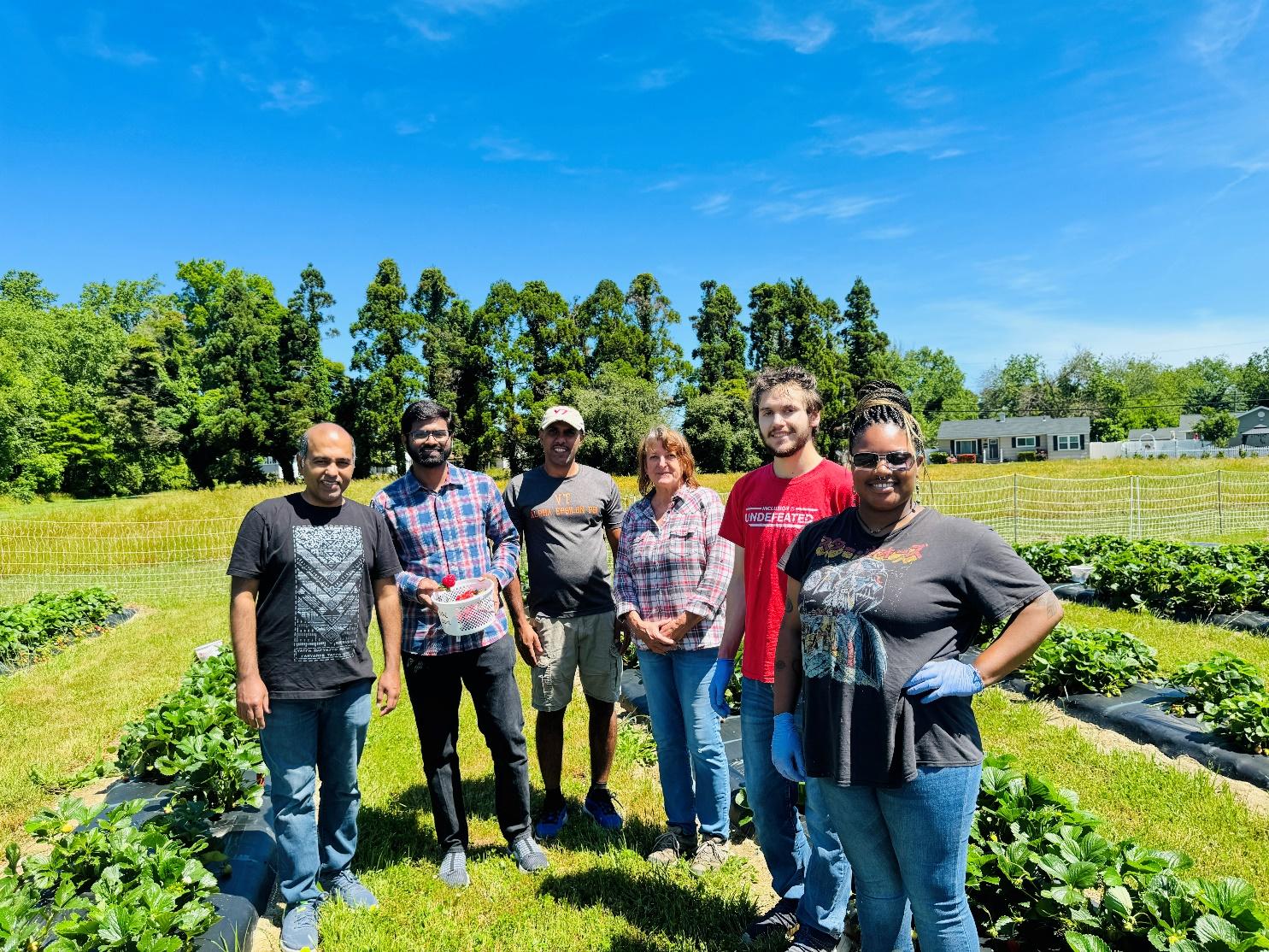
Two undergraduate students and a postdoctoral fellow from the PMB lab at Virginia Tech’s Agriculture Research and Extension Center (AREC) in Virginia Beach, VA, visiting Dr. Jayesh Samtani's research fields in summer 2024
-
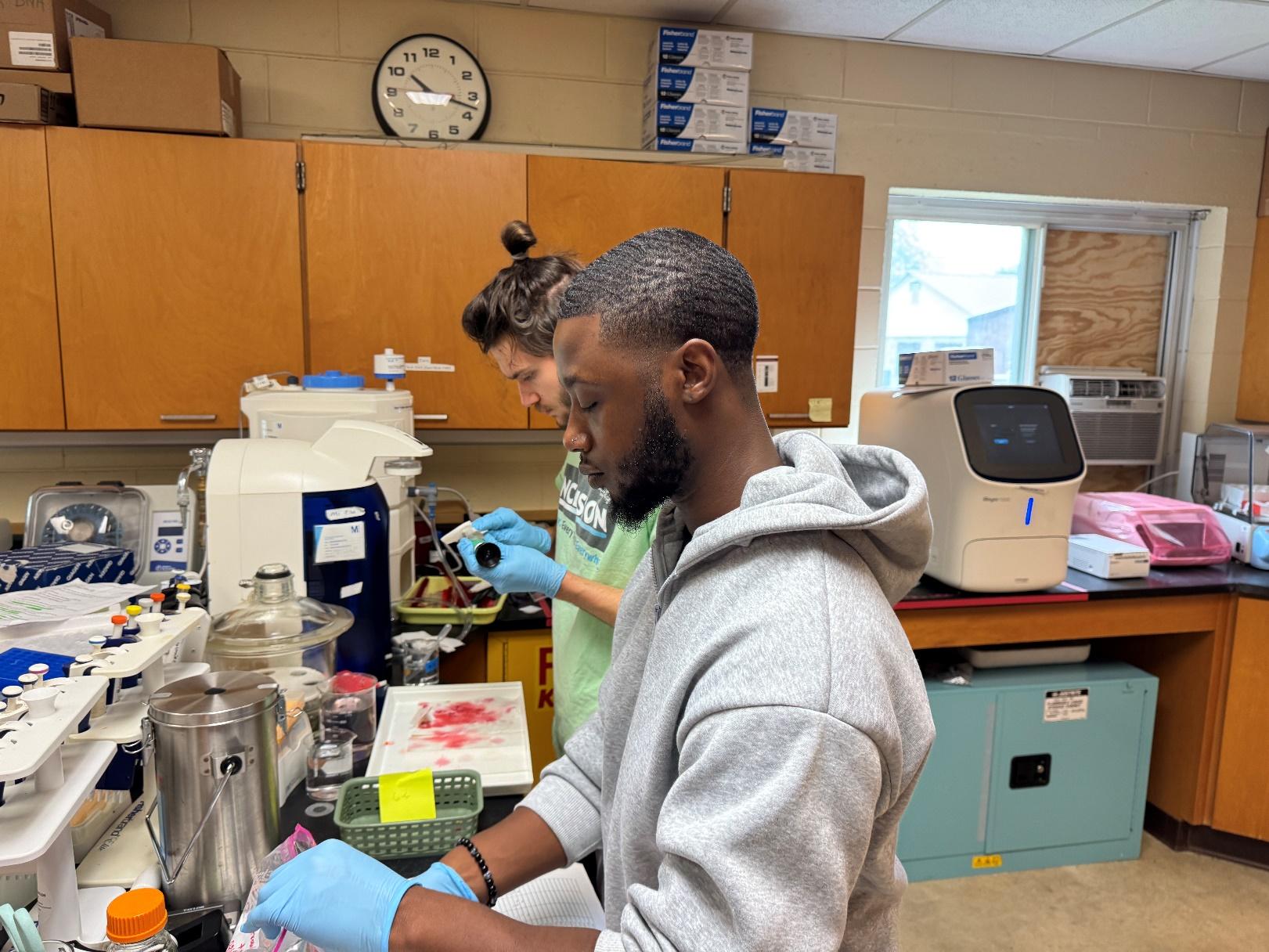
Mekhai and Anthony measuring the strawberry fruit quality parameters in the plant molecular breeding lab
-
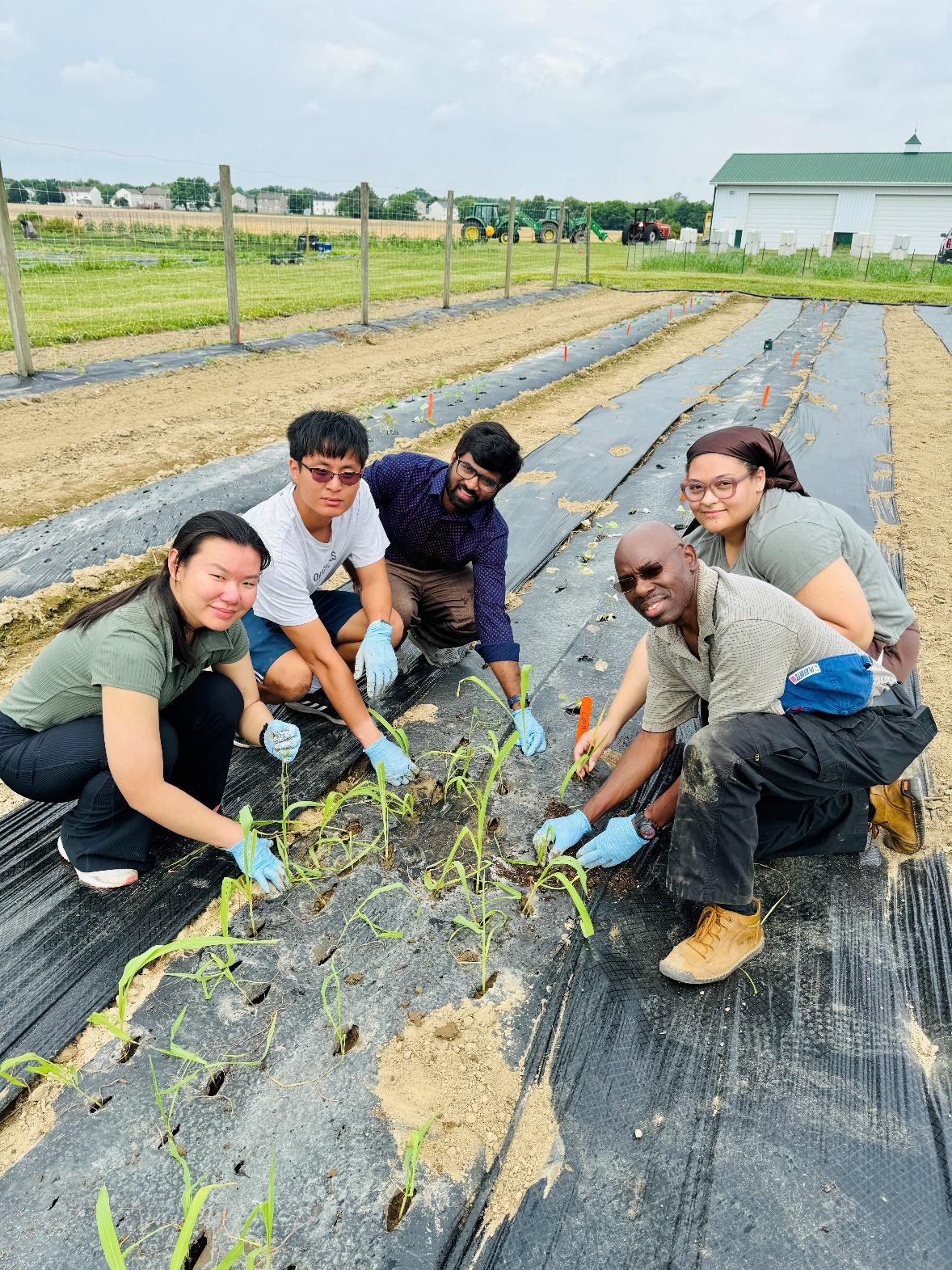
Dr. Vennapusa training the soil health workshop attendees under a USDA-sponsored program in summer 2024
-
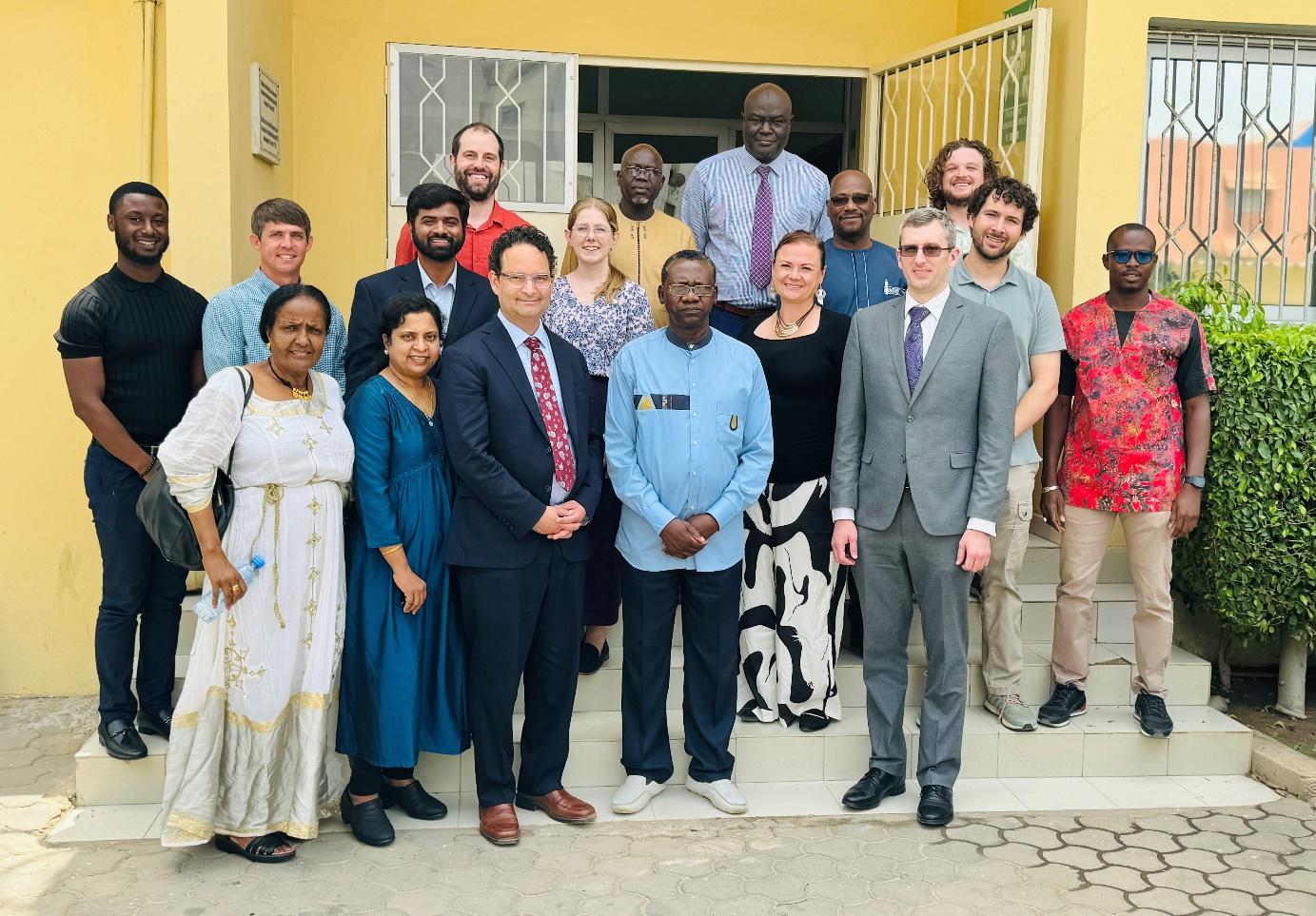
Dr. Melmaiee's lab members visit the Senegal Research team under USAID-sponsored programs
-
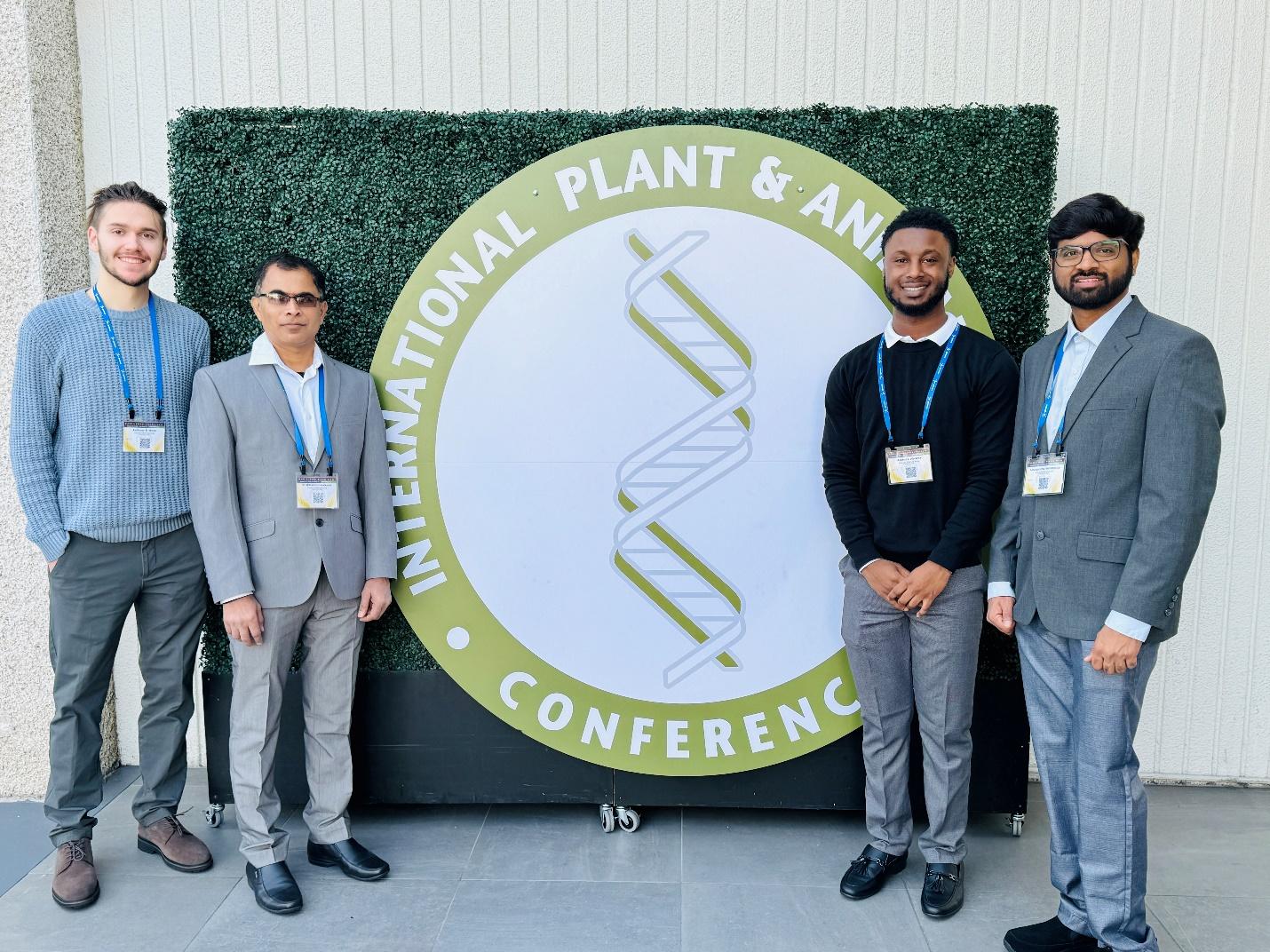
Post docs Dr. Kulkarni & Dr. Vennapusa, and student interns Mekhai & Anthony presented PMB lab research at the 31st Plant and Animal Genome Conference held in San Diego, CA, in 2024
-
Dr. Krishnanand Kulkarni is performing crossing experiments on blueberries
-
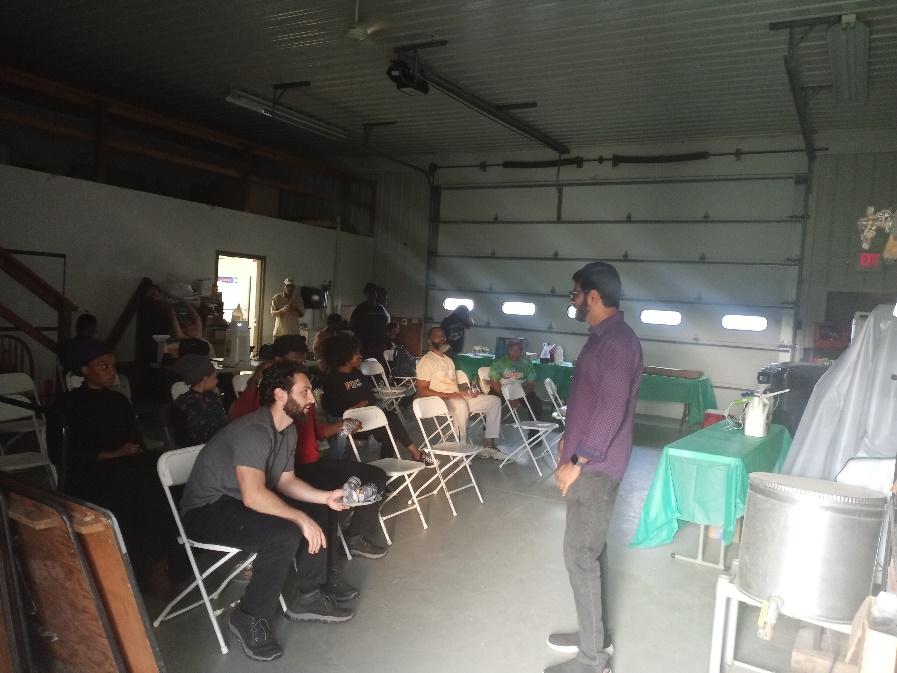
Postdoc Dr. Vennapusa served as a resource person in the workshop “Tackling weeds on small farms: sustainable solutions”, organized by the USDA and DSU-Cooperative Extension Program in July 2025
-
Dr. Krishnanand Kulkarni presenting his research on transcriptome profiling for heat stress responses in blueberries during the Plant and Animal Genome Conference, San Diego 2024
-
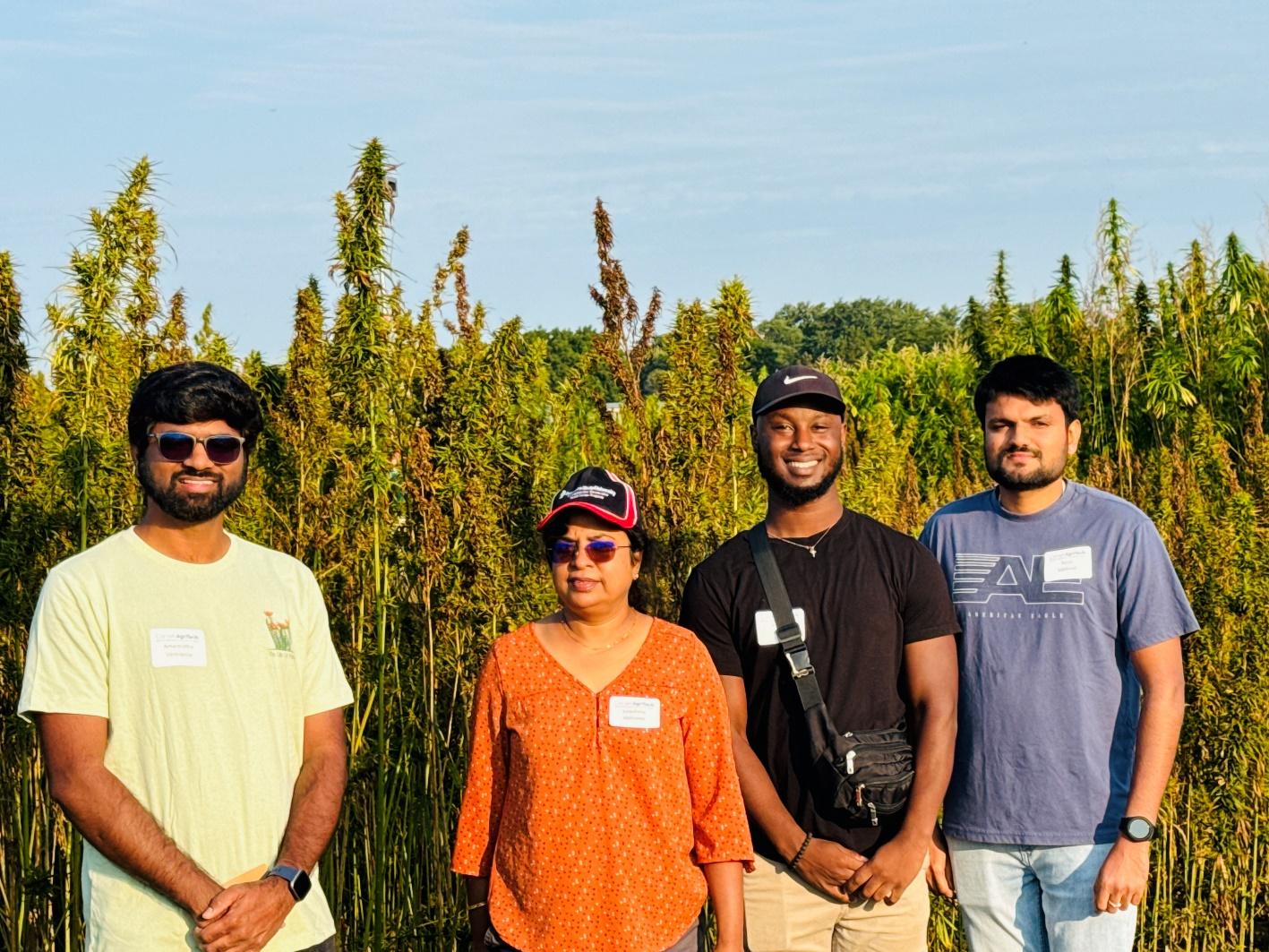
Dr. Melmaiee's lab members attended the hemp field day hosted by Cornell University and the USDA-ARS at Geneva, NY in 2024
-
Dr. Krishnanand Kulkarni is performing data measurements during a heat stress experiment
-
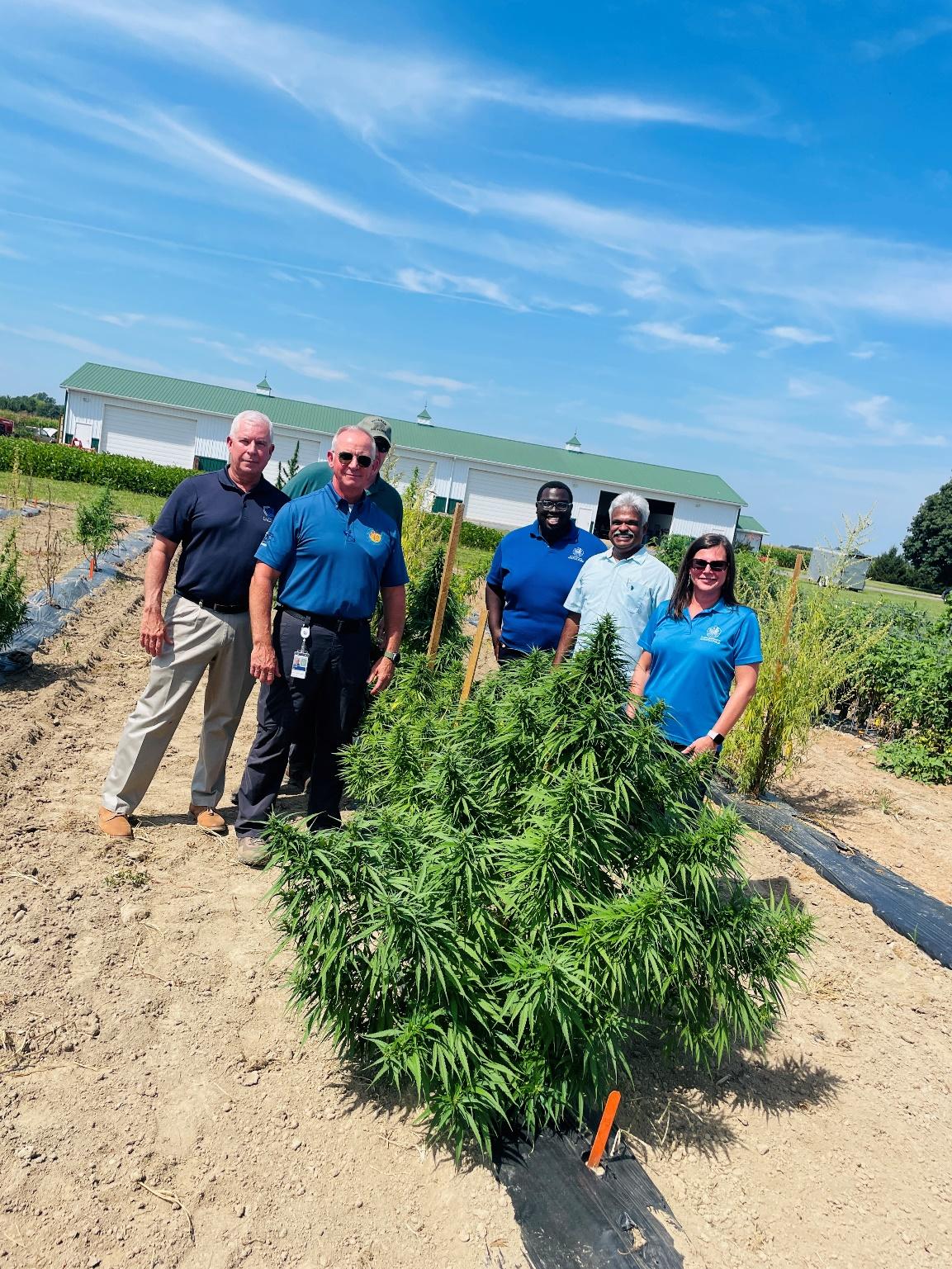
Our collaborator, Dr. Elavarthi, hosted a farm tour to the Delaware Department of Agriculture hemp program offices and stakeholders in summer 2023
Farm Experiences Program (FEP) for Undergraduates (2013-2017)
More than 80% of the US population resides in urban areas compared to 50% a century ago. The number of undergraduate students who major in agriculture and related sciences are increasingly coming from non-farming families. Around 65% of the students in the department of agriculture and natural resources come from non-farm family backgrounds and do not have farming experience. It is very important to a land grant institution to train next generation of leaders in agriculture. We have obtained a competitive grant award from the USDA/NIFA to provide opportunities to students who are coming from non-farm backgrounds.
We have provided summer internship opportunities to 24 undergraduate students to gain hands on experience with agricultural practices. Students spent 20 hours per week with their host farmers/growers for the duration of eight weeks during the months of June and July. Each student was required to maintain a record and attended biweekly meetings. Attending biweekly meeting helps them to share and learn experiences from peers, also motivates them to engage more effectively in academics. At the end of the internship, students present their poster at Delaware State University summer research symposium.
From the beginning of the project, every year, participating students with the help of PIs and graduate students establish a crop museum at the Delaware State University’s research farm. This crop museum hosts around 25 different crops /varieties and it serves as a field site for crop production class taught by Co-PI Dr. Elavarthi where students can identify and observe different crop plants.
Other helpful activities initiated by Dr. Melmaiee and Dr. Elavarthi include:
First generation club: It provides an opportunity to meet other first-generation students from the college of agriculture and across campus. First generation club meetings also serving as starting point for some students to develop peer networking, getting comfortable on campus and get help with subject matters if needed.
Conversation clubs: where panel members will be seniors and recent alumni and the audiences will be freshmen to juniors. Panel members share their thoughts and experiences with audience with set of questions. Hoping that these kinds of meetings help them develop networks and peer mentoring opportunities, which intern will help increase graduation rate.
